October 30, 2024, 6:15 pm CET
Prof. Dr. Güler Doğan Averbek (Marmara University, Istanbul)
The Motives behind Oskar Rescher’s Manuscript Trade
In the 20th century, the German scholar Oskar Rescher (1883–1972) collected, evaluated, and offered hundreds of manuscripts to libraries in the West, especially libraries in Germany. Through his trade activities which lasted almost sixty years, hundreds of oriental manuscripts were added to the collections of more than twenty libraries.
In this talk, the motives behind Oskar Rescher’s manuscript trade will be discussed. In this framework, the environment in Turkey, especially at the time when Rescher was collecting manuscripts, as well as the impact of the reforms implemented after the proclamation of the Turkish Republic on the manuscript market will be discussed. The reforms led to the closure of dervish lodges and madrasas, the unification of educational institutions, an alphabet reform, and the abolition of the Darulfunun. The talk also focuses on Rescher’s awareness of the values and important features of the manuscripts he sent. It touches on his methods for obtaining and selecting manuscripts, his price policies, and his relations with second-hand booksellers.
Güler Doğan Averbek is a faculty member in the Marmara University Department of Turkish Language and Literature. She gained her PhD from Marmara University. She has worked as a researcher at the Research Centre for Islamic History, Art, and Culture (IRCICA) and lectured at Istanbul Medeniyet University and Istanbul 29 May University. She has conducted research on Islamic manuscripts in Turkey, Germany, the Vatican, the Czech Republic, Poland, and Austria.
Watch the video of the event in the media library.
November 27, 2024, 6:15 pm CET
Dr. Bruno De Nicola (Austrian Academy of Sciences, Vienna)
Persian Manuscripts from Mongol Baghdad: A Survey
The fall and subsequent sack of the city of Baghdad by Mongol armies commanded by Hülegü in 1258 CE is a turning point in the history of the city. The general understanding is that after the Mongol conquest, the Abbasid capital underwent a long process of cultural decline affected by a loss of demographics, the destruction of infrastructures and the removal of its cultural centrality in the Islamic world. Accounts of the destruction of Baghdad by the Mongols, and especially the destruction of books during the sack of the city, became a topos across Muslim historical accounts in the pre-modern period, particularly among Arab historians. However, more recent research has shown that after the initial sack of the city, cultural activity in the city recovered, if not to a former glory, to the point that, only decades after the surrender of the city, books were being copied, read, and distributed in Baghdad.
This presentation offers a survey of surviving Persian manuscripts produced in Baghdad before, during, and after the Mongol conquest. It highlights their diversity in literary genre, authorship and the scribal habits that characterise these codices. The presentation shows that, in addition to some evidence of a presence of Persian writing in Baghdad before the Mongol invasion of the city, manuscript production in Persian clearly increased once the Mongols appropriated the city in the mid-13th century. Further, this talk addresses the role of Mongol patronage in this cultural shift, noting the close relationship between Persian scribes and Mongol officials. It suggests that despite the initial impact that the Mongol invasion of Baghdad had on the cultural landscape of the city, cultural production and intellectual activities recovered in Baghdad under the direct influence of Mongol rule. Ultimately, this paper argues that while Arabic remained prevalent, Persian flourished as a literary language in Mongol Baghdad, reflecting the city’s integration into the broader Persianate world.
Bruno De Nicola (BA Barcelona, MA SOAS, PhD Cantab) is Research Associate at the Institute of Iranian Studies (Austrian Academy of Sciences) and PI of the FWF-START Prize project NoMansLand.
Watch the video of the event in the media library.
December 4, 2024, 6:15 pm CET
Prof. Dr. Sarah Bowen Savant (The Aga Khan University, London)
Reading Arabic Books with a Reuse Lens
This presentation is based on my forthcoming A Cultural History of the Arabic Book: Digital Explorations of Writerly Practices and Text Reuse (700–1500; Edinburgh University Press, 2025). The book presents the fruits of the ERC-funded KITAB project (2018–2023), and is the first of two volumes produced jointly by its team members. I will define, classify, and discuss evidence for verbatim reuse across an Arabic corpus of 2 billion words. Authors reused texts in myriad ways: they extracted passages from one book to create a new one, as within thematic collections. They reissued earlier works, reproducing an earlier text in whole or in part. They commented upon earlier works, working line-by-line through earlier texts, or page by page, picking out specific elements for explanation, such as obscure phrases, or particular themes, topics, or people upon which to comment and amplify. Commentarial works also synthesized arguments, concepts, and ideas into more compact statements, for which explanations were offered. These creative practices served as a major engine for the growth of the tradition, but also for its diminishment over time. They occurred in patterned ways that appear graphically within data visualisations now available through the KITAB project’s web application. I will discuss the grammar of these visualisations, as I argue for the relevance of our methods, data, and visualisations for the study of any historical book. Finally, I will discuss KITAB’s recent inclusion within the Digital Library of the Middle East’s online collections, as I chart an agenda for how libraries in particular can take advantage of our data to enhance search functions online, including within their manuscript collections.
Sarah Bowen Savant is a cultural historian specialising in the Middle East and Iran c. 600–1300, a professor of history at the Aga Khan University–Institute for the Study of Muslim Civilisations (AKU–ISMC), and the founding director in 2023 of its Centre for Digital Humanities. Her Digital Humanities project work includes, as PI, the ERC- and Qatar National Library-funded KITAB project, and the Andrew W. Mellon Foundation-funded Open Islamicate Texts Initiative (OpenITI), as co-PI with Matthew Miller and Maxim Romanov.
Watch the video of the event in the media library.
Gotha Manuscript Talks, Spring 2024
April 10, 2024, 6:15 pm CET
Dr. Guy Burak (New York University, New York City)
Situating an Eighteenth-Century Library: Reflections from the Ahmad Pasha al-Jazzar’s Library Project
In recent years, the study of Middle Eastern and Islamic libraries has called into question commonly used adjectives: “Islamic”, “Ottoman”, “Medieval”, “Mamluk”, “Syrian”, “Palestinian”... Years of research and numerous monographs have made it quite evident that each of these adjectives conceals as much as it reveals about the library, yet scholars have found it hard to abandon them. The question of the proper adjectives has become pressing again in the collaborative research project on the eighteenth-century library established by the famous Ottoman governor al-Jazzar in the northern Palestinian town of ‘Akka. As one of the editors who coordinated the project, whose participants came from different disciplinary backgrounds, I found myself intrigued by these attempts to classify al-Jazzar’s library. The talk, then, will offer a reflection on the challenge of classifying a library in the broader context of the historiography of libraries in the region.
Guy Burak is Librarian for Middle Eastern and Islamic Studies at NYU Libraries. His research focuses, among other topics, on Islamic history and law.
Watch the video of the event in the media library.
April 24, 2024, 6:15 pm CET
Prof. Adam Sabra (University of California, Santa Barbara)
Books Left Behind: The Library of a Cairene Scholar at the Turn of the Seventeenth Century
Zayn al-ʿĀbidīn ibn Muḥammad al-Bakrī, one of the leading religious scholars of his time in Egypt and the son of a very famous scholar and Sufi, died suddenly and mysteriously in 1604. His estate inventory, which is preserved in a sijill of Maḥkamat al-Qisma al-ʿAskarīya (Probate Court of the Askeri Class) in Cairo, lists a collection of books that were his private property and formed part of his estate. This list provides a window to the cultural horizons of an elite scholar of this period, especially when contextualized with the life of the owner and the history of the lineage to which he belonged.
Adam Sabra is Professor of History and King Abdul Aziz Ibn Saud Chair in Islamic Studies at the University of California, Santa Barbara. His research focuses on the social and cultural history of Egypt in the Mamluk and Ottoman periods.
October 18, 2023, 6:15pm CET
Prof. Zeynep Yürekli (University of Oxford)
Manuscripts Attributed to Matrakçı and the Dresden Drafts
Presenting one aspect of an ongoing research project on a group of Ottoman manuscripts famously attributed to the historian and courtier Matrakçı Nasuh (d. ca 1564), this lecture focuses on a compilation of manuscript fragments and topographical views in the Sächsische Landesbibliothek/ Staats- und Universitätsbibliothek in Dresden. A thorough codicological examination revealed that these were made as parts of a single project in the 1540s and early 1550s (which also produced nine other non-illustrated manuscripts currently in Berlin, Cambridge, Istanbul, London, St Petersburg and Vienna) and served as drafts for two illustrated manuscripts that are now in the Topkapi Palace collection in Istanbul.
The Dresden drafts bear witness to the teamwork behind the corpus attributed to Matrakçı, involving an author/editor (quite possibly, though not necessarily, Matrakçı Nasuh), bureaucrats, scribes and artists, at the initial stages of a long-winded effort to produce an illustrated record of the Ottoman sultans’ achievements – an effort that would continue until the end of the sixteenth century and generate a series of lavishly illustrated narratives. Situating this experimental early phase of writing and illustrating Ottoman dynastic history within the evolving cultural policies and courtly structures of the time, this talk shifts attention from final product to process; from painting to relationship between text and image; and from high point to early experimentation.
Zeynep Yürekli is Associate Professor of Islamic Art and Architecture at the University of Oxford, UK. She specializes in Ottoman Studies, but her research interests also extend to pre-modern Iran and Central Asia. Her publications explore aspects of architecture, cult of the saints, hagiography, historiography and manuscripts in the early modern period.
November 1, 2023, 6:15pm CET
Prof. Garrett A. Davidson (College of Charleston)
A Preliminary View of the Maktabat al-Khānjī Papers
This talk offers a preliminary view of the recently discovered collection of Maktabat al-Khānjī papers. The papers, accumulated and preserved by Sāmī al-Khanjī in Cairo, document his and his father’s business and scholarly activities from the 1920s to 1960s and provide an unparalleled window onto the worlds of the Arabic and Islamic manuscript trade, as well as the networks and connections between Orientalists and Muslim scholars in the first half of the twentieth century. Further, the collection is key to understanding the provenance history of some of the major collections of the Middle East, Europe, and North America.
Garrett Davidson is Associate Professor of Arabic and Islamic Studies at the College of Charleston. He studies the Islamic scholarly tradition, Arabic Manuscript culture, and provenance history. He is author of Carrying on the Tradition: A Social and Intellectual History of Hadith Transmission across a Thousand Years.
November 15, 2023, 6:15pm CET
Dr. Adeline Laclau (Ecole Pratique des Hautes Etudes)
Illuminated Manuscripts in the Mamluk Sultanate: Making Processes and Contexts of Production
In 14th and 15th century Egypt and Syria, thousands of manuscripts were commissioned by Mamluk sultans and emirs, as well as the civilian elites, for private libraries or for religious and academic foundations. Preserved in large number, these manuscripts bear witness to the effervescent social, intellectual, and cultural life in late medieval Egypt and Syria. Many of these books are illuminated and emphasize the importance of the arts of the book in the history of manuscript production in the Mamluk period. Primary sources are almost completely silent on practices and contexts of production associated with the realization of these illuminated manuscripts, so only a material analysis can provide information on the history of this artistic production.
This paper sheds light on the making processes, as well as the contexts of production and reception of these illuminated manuscripts in order to give an insight into their material and socio-cultural history. The material and stylistic characteristics of these artifacts are discussed through the examination of relevant examples in order to highlight the major developments of this artistic production. Emphasis is also placed on the main artists and patrons who contributed to the flourishing and evolution of this specific book production throughout the Mamluk period.
Adeline Laclau is an Art Historian who specializes in Mamluk artistic productions. Her research focuses on the material and social history of illuminated manuscripts produced in 14th and 15th century Egypt and Syria. She completed her PhD in Islamic Art History at Aix-Marseille University in 2019. She was a Bahari Visiting fellow at the Bodleian Library in 2021 and held a postdoctoral position at the Ecole Pratique des Hautes Etudes in 2022-2023.
Watch the video of the event in the media library.
Local Manuscript Brokers: Between Preserving and Selling Literary Heritage
Organized by the Gotha Research Library in cooperation with Prof. Dr. Konrad Hirschler (Centre for the Study of Manuscript Cultures, Universität Hamburg)
At the turn from the nineteenth to the twentieth century, European missionaries, merchants, and travellers were no longer the main source of Arabic, Persian, and Ottoman manuscripts for European collectors and institutions. An insufficiently studied group of local manuscript collectors and sellers entered the scene. These individuals mediated the transfer of large collections of manuscripts to libraries in Europe, America, and other parts of the world. They belonged to a group of researchers and scholars who stood outside the mainstream of scholarship produced during what is called the nahḍa, often translated as “Arab literary renaissance”. Despite strong ties to intellectual circles and publishing houses, these individuals conducted their work on the margins of literary, journalistic, and scientific production. They had various religious backgrounds, but many of them came from Jewish, Christian, and Islamic religious elites and/or clergy. This background facilitated their access to manuscripts and opened doors to book collections in local contexts for them.
Guardians and sellers of the literary heritage, these individuals functioned as intermediaries, as “brokers” who preserved and marketed manuscripts. Some of them were bibliophiles and worked towards creating their own collections, for their love of books or various scientific purposes. They kept meticulous records of their collections, produced and published indexes, and at a later stage negotiated the sale of these collections, sometimes under conditions of warfare and sectarian unrest. Prominent examples are the Muslim religious scholar Amīn al-Madanī (d. 1898), the priest, theologian and oriental scholar Alphonse Mingana (d. 1937), the Syrian Catholic priest Paul Sbath (d. 1945), and the Jewish scholar and collector Abraham Shalom Yahuda (d. 1951), who grew up in Ottoman Jerusalem and later studied and taught in different European cities. These and other individuals mediated the large-scale transfer of manuscripts, a fact that is commemorated in the names of important collections of libraries worldwide.
The spring series of the Gotha Manuscript Talks 2023 focuses on local manuscript brokers, dealers in Arabic, Persian, and Ottoman manuscripts, who around the turn of the twentieth century played a crucial role in the preservation and transfer of manuscripts and manuscript collections from the Middle East, Turkey, West Asia and North Africa to Europe, America, and other locations on a global scale. Speakers engage with the social and intellectual background of these bibliophiles and book dealers and their motivations for buying, preserving, and bartering books. They furthermore investigate the intellectual geography in which books circulated to be eventually assimilated in today’s oriental collections in libraries from Saint Petersburg to Rome and New Haven.
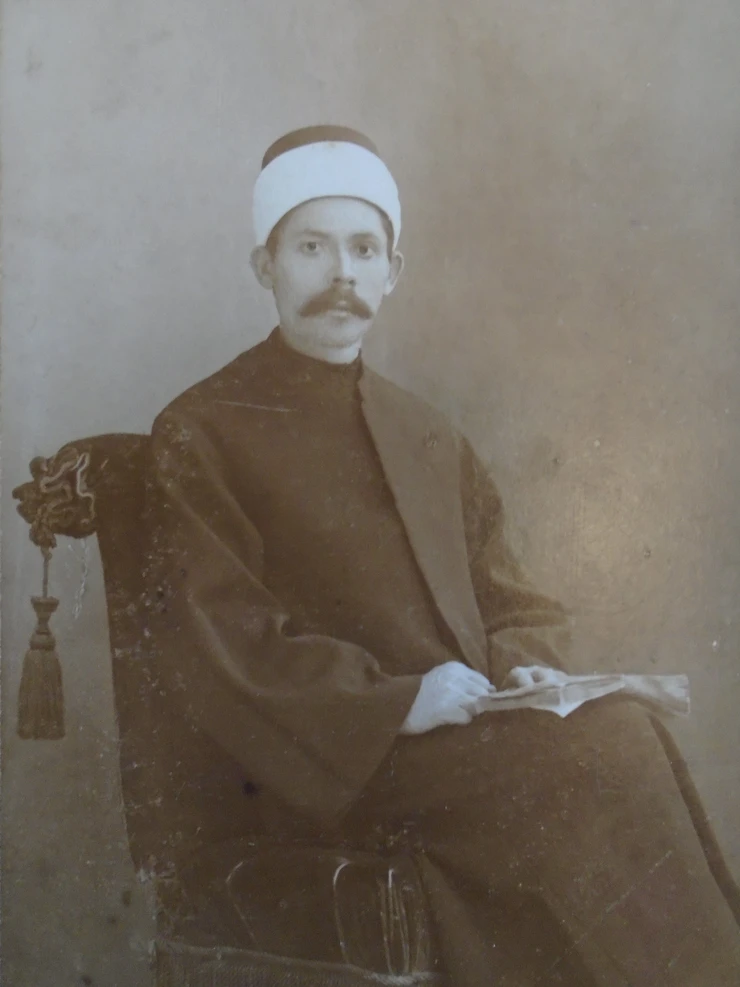
March 22, 2023, 6.15 pm
Dr. Alfrid Bustanov (University of Amsterdam)
Selling Manuscripts to Soviet Orientalism: The Book Trade of Sabir 'Alimov (1872-1942)
The book trade was an important source for assembling manuscripts at the Orientalist institutions in early Soviet Russia. In the course of the 1930s, the newly established Leningrad Institute of Oriental Studies enlarged its collections of Islamic manuscripts by acquiring items from multiple individuals in the Muslim regions of Inner Russia. The al-Azhar graduate Sabir 'Alimov (1872-1942) was part of this process and over several years shipped a significant number of Islamic books from Astrakhan to Leningrad. This case of book trade exemplifies the transformation of Islamic knowledge into the body of manuscripts meant for Orientalist preservation and research. On the basis of 'Alimov’s private archive, we will explore the expectations of a Muslim scholar and Soviet Orientalists in regards of the quality of the collected material and the global purposes of the trade.
Dr. Alfrid Bustanov is assistant professor at the University of Amsterdam and PI of the ERC Starting Grant The Muslim Individual in Imperial and Soviet Russia. He has published widely on the history of Islam in Russia past and present. His current book project examines the history of Muslim book collections in Soviet Russia.
Watch the video of the event in the media library.
April 5, 2023, 6.15 pm
Farid El-Ghawaby (Freie Universität Berlin, Berlin Graduate School Muslim Cultures and Societies)
Local Agents and their Power Articulation in Manuscript Translocations: The Case of Jamāl/ Aḥmad al-Miṣrī and Johann Gottfried Wetzstein
In this presentation I will discuss the records and correspondence on Wetzstein’s acquisition ventures recently found in the internal archives of the Berlin State Library. Building upon Christoph Rauch, this presentation will re-visit Wetzstein’s lately found letter Nachrichten zum Catalog der arabischen Handschriftensammlung des Dr. J. G. Wetzstein among other sources. While touching upon the degree of Wetzstein’s embeddedness in Damascene society, this presentation aims to elucidate the agency of a local antiquities dealer, Jamāl al-Miṣrī, in translocating Arabic manuscripts. My argument is that al-Miṣrī – like other local agents – played an active and important role in shaping what has become the material corpus of knowledge of nowadays manuscript repositories. The function of local manuscript dealers as ‘gate keepers of manuscript trade’ will be further stressed by briefly looking at other non-local and less successful agents involved in manuscript translocations, highlighting the power local agents were capable of articulating.
Farid El-Ghawaby is a Ph.D. student at the Berlin Graduate School Muslim Cultures and Societies of Freie Universität Berlin. His thesis deals with Quranic fragments of the Qubbat al-Khazna (Damascus), their translocation histories and (local) actors involved therein. He conducted archival work in Cambridge, Cairo and Berlin. He teaches Arabic at Freie Universität Berlin as an Associate Lecturer since 2016 and studied Islamic Studies and Religious Studies in Berlin (2013-2019).
April 19, 2023, 6.15 pm
Evyn Kropf (University of Michigan)
Agent and Architect: Abraham Shalom Yahuda's Role in Developing the Islamic Manuscripts Collection at the University of Michigan
As a discerning collector and broker of manuscripts and other cultural heritage objects, the Jerusalem-born, German-trained Jewish scholar Abraham Shalom Yahuda (1877–1951) has a well-established reputation. Yahuda operated within a substantial network of institutional, scholarly, political, and cultural interests – leveraging his positionality, his academic appointments, his trade contacts, and other connections to carefully source, remove, and place significant manuscripts and other objects in the collections of powerful and prestigious institutions.
While Yahuda’s hand in shaping the holdings of a number of American and European libraries has been recognized – his influence on the Princeton University Library holdings in particular – the extent of his involvement in these collecting histories is still being brought to light. His influence extends to the University of Michigan, where in 1926 – thanks to contacts at the British Museum and the platform already established by his brother, the Cairo-based dealer Isaac Benjamin Shlomo Ezekiel Yahuda (1863-1941) – he was able to place 265 manuscripts that would significantly expand the core of the University’s Islamic Manuscripts Collection.
This talk explores Yahuda’s approach to negotiating and promoting this acquisition in the midst of his broader manuscript sourcing and dealing of the mid-1920s and the collecting ambitions of the University. The ensuing narrative sheds light not only on the contemporary network of trade, but also on Yahuda’s assessment of manuscript and collection value for a would-be institutional collector.
Evyn Kropf is a librarian and curator of Islamic manuscripts at the University of Michigan Library. As a specialist of Islamic codicology and Arabic manuscript culture, her particular interests include writing material (especially paper), structural repairs, reading and collecting practices of the Ottoman era as well as the significance of pictograms and other visual content for Sufi knowledge transmission. https://lib.umich.edu/users/ekropf
Watch the video of the event in the media library.
5 July 2023, 6.15 pm (made up event from 30 May 2023)
Special edition of the Gotha Manuscript Talks
Presentation and discussion of the book "Owning Books and Preserving Documents in Medieval Jerusalem: The Library of Burhan Al-Din"
Discussion with the authors Prof. Dr. Konrad Hirschler and Dr. Said Aljoumani (both Centre for the Study of Manuscript Cultures, Universität Hamburg).
The book presentation will be held in Arabic.
Thinking Manuscript Provenance Beyond Europe
Organized by the Gotha Research Library in cooperation with Prof. Dr. Konrad Hirschler (Centre for the Study of Manuscript Cultures, Universität Hamburg)
In the last decades, the issue of provenance has emerged as a topic of central concern in the study of manuscripts, and it has given rise to an entire field – Provenance Studies. Both among scholars and the general public, the engagement with the ownership and transmission of manuscripts and cultural heritage has increased awareness of the legacy of colonialism. Significant numbers of Arabic, Ottoman, and Persian manuscripts were transferred to European libraries, archives, museums, and collections due to imbalances of power, economic exploitation, and violent coercion. The study of the provenance of Middle Eastern manuscripts has allowed scholars to critically engage with this legacy and to open up new areas of research. However, manuscripts that were brought to Europe had often been in circulation for centuries, and other manuscripts never left the Middle East. Even during the nineteenth and twentieth centuries, European states and individuals were not the only – and often not necessarily the main – actors who transferred manuscripts. Taking the analytical angle of provenance, but refocusing it away from European actors thus allows us to ask new questions: How can we recover the agency of non-European actors in the field of manuscript movements? In which cultural, religious, or social milieus did manuscripts circulate in the Ottoman and Safavid Empires? How can the study of the provenance of manuscripts help us understand the nature and significance of books and book collections and material culture more generally in the Middle East? To what extent does the transfer of manuscripts from one owner to another shed light on social or economic disparities, on the social ascent or descent of individuals and groups? In what ways does it help us to understand the relations of such groups and individuals to institutions of learning and political elites?
The fall series of the Gotha Manuscript Talks 2022 is devoted to manuscript provenance beyond Europe. Mindful of the central relevance of provenance in the critical engagement with the colonial legacy, speakers engage with provenance as a tool for studying the social, economic, religious, and cultural horizons of those in North Africa and West Asia who owned, collected, sold, lent, bequeathed, and endowed books and book collections.
Join the event here: https://uni-erfurt.webex.com/meet/veranstaltungen.fb
October 26, 2022. 6.15 pm
Mobile Arabic manuscripts across the early modern western Indian Ocean
Dr Christopher Bahl (Durham University)
Arabic manuscripts and texts of South Asian provenance abound in collections across Europe, the Middle East and India. Refracted during the nineteenth century through practices of looting, cultural appropriation, and commercial transactions, many of those manuscripts were initially the product of an extensive Arabic text circulation across the early modern western Indian Ocean. Based on corpora from Hyderabad, Cairo, Istanbul and London, the talk will excavate the early modern transoceanic encounters that those manuscripts negotiated between scholars and sultans, scribes and readers, librarians and slaves. I elaborate on the notion of “mobile manuscripts” and how they crafted distinct sociabilities that helped build transregional Arabic cultures of learning. Marginalia and manuscript notes provide an empirical treasure trove to study those social spaces and cultural practices. From the fifteenth to the sixteenth centuries Arabic learning spread in the subcontinent and fostered long-term entanglements with the Red Sea. By the seventeenth century new political and cultural dynamics across South Asia reconfigured scholarly movements and pursuits. Local libraries and scholarly communities spread across the subcontinent. Their book cultures offer a source-base to explore the western Indian Ocean as a prolific field of Arabic scholarly culture.
Christopher Bahl is an Assistant Professor in South Asian History in the History Department of Durham University. He was a Research Associate at the Orient-Institut Beirut, Lebanon from 2018-2020. He completed his PhD in History at SOAS, University of London in 2018 and conducted field work in Cairo, Istanbul and across India. He studied Islamic Studies and South Asian History in Heidelberg, Damascus, Hyderabad and London.
Watch the video of the event in the media library.
November 9, 2022. 6.15 pm
Constantinople: Capital of Arabic Literature
Dr Boris Liebrenz (Saxon Academy of the Sciences and Humanities)
For those interested in the manuscript sources of Arabic literature, the rich book collections of Baghdad, Berlin, Cairo, Damascus, Leiden, London, or Princeton can pride themselves with immense treasures. But there is no place to rival the libraries of modern Istanbul in scope and splendor. This talk will look at the roots of this current state, when the Ottoman capital was the main nexus for the trans-regional circulation of Arabic books for nearly half a millennium between the 15th and 19th centuries.
More than a simple point of provenance, Constantinople and the ways books took to and from its markets and book-shelves represents the lives, often rich, sometimes tumultuous, of books and those who interacted with them. As a gravitational center of great attraction for books from all over the vast Ottoman empire and beyond, it was also the source for many who wanted to collect on their own. This paper will highlight some of the central actors in this process, particularly of the 17th and 18th centuries, and show how they helped shape the Arabic literary tradition as we still have it today. Central among these will be Abū Bakr b. Rustam al-Širwānī (d. 1135/1723), one of the era’s most ferocious bibliophiles, whose many books are now scattered all over the world and thus allow us to follow the currents of the book market in every direction.
I will also discuss the basic methodological question of how to write the history of such a book culture. How can we reconstruct the routes a given codex took, the content of libraries, the social settings in which particular texts were circulating?
Boris Liebrenz studied history and Arabic philology at Leipzig University and, after postdoctoral positions in Bonn, Berlin, and New York City, is currently a research fellow at the Bibliotheca Arabica project at the Saxon Academy of the Sciences and Humanities. His publications explore documentary and manuscript sources from several eras, from early Arabic papyri to 18th-century merchant letters. His second book, Die Rifāʽīya aus Damaskus: Eine Privatbibliothek im osmanischen Syrien und ihr kulturelles Umfeld (Leiden: Brill, 2016), was awarded the Annemarie Schimmel Research Prize in 2017. Recent projects include the edition and study of an Aleppine weaver’s notebook from the 16th century (The Notebook of Kamāl al-Dīn the Weaver, with Kristina Richardson, Beirut: Orient Institut, 2021) and Arab Traders in Their Own Words. Merchant Letters from the Eastern Mediterranean Around 1800 (Leiden: Brill, 2022).
Watch the video of the event in the media library.
November 30, 2022. 6.15 pm
Literary and historical manuscripts in seventeenth-century Aleppo: The “Dervish” Aḥmad revisited
Dr Simon Mills (Newcastle University)
The “Dervish” Aḥmad has been familiar to historians for some time, thanks to his activities in Ottoman Aleppo on behalf of seventeenth-century European Orientalists. This talk will position this extraordinary figure in his own cultural milieu, by presenting some new findings about his identity, and exploring his work as a copyist of and dealer in Arabic manuscripts. It will argue that Aḥmad’s career sheds some light, not only on the history of European scholarship, but on the production and sale of books more broadly in an early modern Ottoman city. This, in turn, might help us better to understand aspects of Ottoman Aleppo’s intellectual culture – in particular, contemporary interest in Arabic literary and historical writing.
Simon Mills is Senior Lecturer in Early Modern History at Newcastle University, UK. He is the author of A Commerce of Knowledge: Trade, Religion, and Scholarship between England and the Ottoman Empire, c.1600-1760 (Oxford University Press, 2020). His research focuses on the intellectual connections between early modern Europe and the Ottoman Empire, and the histories of biblical and Oriental studies.
Watch the video of the event in the media library.
Scattered, Looted, Vandalized, and Destroyed: Manuscripts and Violence
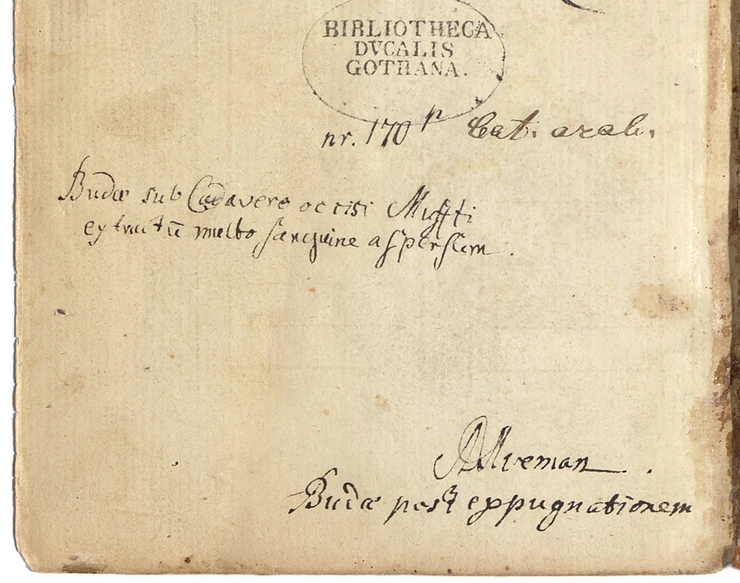
Organized by the Gotha Research Library in cooperation with Prof. Dr. Konrad Hirschler (Centre for the Study of Manuscript Cultures, Universität Hamburg)
When we speak of the circulation of Arabic, Ottoman, and Persian manuscripts, we often think of activities like purchasing, gift-giving, collecting, bequeathing/ inheriting, lending, endowing, and exchanging as important stimuli for the transfer of books from one place to another, from one person to another, or from one institution to another. However, books were sometimes brought into circulation because of historical episodes of violence and disruptive events affecting communities or even entire societies. They were stolen and carried away in times of unrest, as in the case of Muley Zidan, the Sultan of Morocco (1603–1627), whose Arabic manuscripts ended up being incorporated into the Library of the Escorial after falling into the hands of European pirates. Books could also become spoils of war, for example during the Ottoman Wars in Europe: According to a note in a seventeenth-century ḥadīth work, the manuscript, which is now preserved at the Gotha Research Library (Ms. orient. A 3), was found on the battlefield “under the body of a dead mufti”. Violence and disruptive events could alternatively also result in the wholesale destruction of book collections and libraries and put an end to their preservation, use, and circulation. Especially since the end of the 20th century up until today, a number of collections and libraries have been looted, vandalized, and destroyed. Such events continue to put rare manuscript cultures at risk, as in the case of the historic manuscripts at the Timbuktu library which were burned in 2013, or in the case of the Zaidi manuscript heritage endangered during the Civil War in Yemen.
The spring series of the Gotha Manuscript Talks 2022 explores the fate of manuscripts during episodes of violence and destruction. Speakers discuss how such disruptions affected patterns of preservation, use, and circulation, and they inquire into the consequences of such violent displacements and transfers for the manuscript cultures of the Middle East and beyond.
March 30, 2022. 6.15 pm
From Ségou to SAVAMA: Destruction and Creation of West African Archives 1892-2022
Dr. Ali Diakite und Dr. Paul Naylor (Collegeville, Minnesota)
Manuscript culture and preservation in West Africa has been punctuated by moments of destruction. In 1591, Moroccan armies invaded the Songhai Empire, leaving the library of the famous Timbuktu scholar and jurist Ahmad Baba in ruins. Three hundred years later, French colonial authorities seized the library of al-Ḥājj ʻUmar Tal after their conquest of Ségou, renamed it Les Fonds Archinards and, in 1892, moved it permanently to the Bibliothèque nationale in Paris. But in many instances, the creation of new archives can also be destructive. In the 1960s, as West African countries gained their independence, nationalist leaders in Nigeria, Niger, and elsewhere co-opted private archive collections into the service of the state. Meanwhile, advances in digitisation and, also, a flood of international development money, threatens to turn the preservation of African archives into a “numbers game” in which hundreds of family libraries are subsumed into a few vast collections. The most ambitious digitisation project is, again, in Timbuktu, where SAVAMA-DCI, a local NGO, evacuated twenty-eight family libraries to the Malian capital Bamako, following the Islamist occupation of northern Mali in 2013. Our talk will assess how the study of primary sources is closely intertwined with the histories of the archives within which they are found, and discuss how the growing transnationalization of West Africa’s archives will affect access and study.
Ali Diakite completed his PhD at the École Normale Supérieure in Lyon, France, on West African intellectual life in the 19th century. A native speaker of Arabic, Fulfulde, and Bambara, Diakite completed his MA work in Arabic Studies at the Université de Bamako, Mali. He has contributed to the West African Arabic Manuscripts Microfilm Project (MMAP) and is currently working as Cataloger of West African Manuscripts at the Hill Museum and Manuscript Library.
Paul Naylor holds a PhD in African Studies from the University of Birmingham (UK). His book, From Rebels to Rulers, studies Arabic manuscript tradition in the Sokoto Caliphate and required extensive engagement with archives in Niger, Nigeria, the UK, France and the USA. Having catalogued the British Library’s collection of Arabic script manuscripts from Africa, he now works at the Hill Museum and Manuscript Library as a Cataloguer of West African Manuscripts.
Watch the video of the event in the media library.
April 13, 2022. 6.15 pm
After 1683: The Circulation of Türkenbeute Manuscripts
Dr. Paul Babinski (Kopenhagen)
In the years following the Ottoman retreat from Vienna in 1683, waves of orientalia looted from the conquered cities of Ottoman Europe came westward with returning soldiers and traveling merchants. In a short time, hundreds of Türkenbeute manuscripts arrived in private collections, circulating as trophies of war, exotic souvenirs, and objects of scholarship. Some of these manuscripts contain inscriptions that describe the circumstances of their looting, casting light on the violence that followed conquest. On the flyleaves of others, we find traces of the legends told about them, their status as gifts, and their gradual consolidation in major collections. Other inscriptions provide glimpses of their earlier Ottoman readers and the world from which they were torn.
This talk will use a variety of sources—letters, works of scholarship, and the manuscripts themselves—to retrace the lives of looted manuscripts, focusing on the dispersal of Buda’s collections in 1686. The trajectories of Buda’s manuscripts show both the wide reach of Türkenbeute and the broader shift in German orientalist scholarship toward the study of Islamic sources.
Paul Babinski is a Postdoctoral Researcher with the ERC Synergy Project ‘The European Qur’an. Islamic Scripture in European Culture and Religion 1150-1850 (EuQu)’ at the University of Copenhagen. His work focuses on early modern orientalist scholarship and the movement of philological knowledge between the Near East and Western Europe. He is currently writing a book on how early modern orientalists read the Qur’an.
Watch the video of the event in the media library.
April 27, 2022. 6.15 pm
What is the Delhi Collection and why does it matter? Looting, Restitution and Islamic Manuscripts in 1857 Delhi
Dr. Nur Sobers-Khan (Cambridge, Massachusetts)
My talk will propose that the collection known as the “Delhi Collection” currently housed in the British Library, London needs to be analysed with greater attention to the provenance of its manuscripts. The Delhi Collection was long considered to be the remnants of the Mughal library, consisting of roughly 1957 volumes of Arabic manuscripts, 1550 Persian, and 157 Urdu. Through a close examination of the scribal output of one particular nineteenth-century scholar whose manuscript library seems to have been included in the Delhi Collection – but who was not part of the milieu of the Mughal court but rather associated with the anti-colonial network of Muslim scholars of the Madrasah Rahimiyah – not only can the intellectual network of this scholar be reconstructed, but it also becomes possible to argue that the Delhi collection contains the libraries of private scholars whose collections were looted in 1857. By using evidence from colophons and inscriptions in tandem with the content of the manuscripts, this scholar’s biography, patronage connections, as well as intellectual motivations and trends that caused him to copy the texts can be outlined, capturing something of the pre-1857 Muslim intellectual world of Delhi that British colonial violence attempted to destroy.
Nur Sobers-Khan is the director of the Aga Khan Documentation Center, a research center and archive of Islamic visual culture and urbanism at MIT. From 2015–2021, she was the Lead Curator for South Asia Collections at the British Library, London, where she was responsible for curating the South Asian printed book and manuscript collections and was Principal Investigator of the AHRC-funded project Two Centuries of Indian Print (2016–2021). Her current research focuses on the transition from manuscript to print in South Asia and the creation of new genres and forms of reading through the circulation of lithographed texts on cosmology, dream interpretation, and other divinatory literatures. She has taught at the University of Cambridge, St Mary’s University College, and Habib University, where she designed the undergraduate courses, “Dream Interpretation: A Decolonial History” and “Islamic Art and Visual Culture: From the Middle East to South Asia.”
Watch the video of the event in the media library.
March 24, 2021. 5 pm
Lecture by Prof. Dr. Ronny Vollandt (Ludwig-Maximilians-Universität München)
Die Bibel auf Arabisch? Ein Blick in frühe Handschriften
For information on the content and speakers, please see the German version of this page.
Watch the video of the event in the media library.
April 28, 2021. 5 pm
Lecture by Prof. Dr. Beatrice Gründler (Freie Universität Berlin)
Arabische Buchkultur im 9. Jahrhundert
For information on the content and speakers, please see the German version of this page.
Watch the video of the event in the media library.
October 6, 2021. 6.15 pm
Book Culture in Nineteenth-Century Egypt through the Lens of Seetzen’s Manuscript Collection
Prof. Dr. Ahmed El Shamsy (Chicago)
The collection of more than 1,500 Arabic manuscripts that Ulrich Jasper Seetzen procured in Cairo for his patron, the Duke of Saxe-Gotha-Altenburg, was the product of two years of intensive effort. The manuscripts spanned the entire sweep of Islamic history, from early Quran fragments to poems about Napoleon’s still-recent occupation of Egypt. Examining the contents of the collection in conjunction with Seetzen’s correspondence provides a window on the book culture that Seetzen encountered in early nineteenth-century Cairo.
Ahmed El Shamsy is an associate professor of Islamic thought at the University of Chicago. He studies the intellectual history of Islam, focusing on the evolution of the classical Islamic disciplines and scholarly culture within their broader historical context. His research addresses themes such as orality and literacy, the history of the book, and the theory and practice of Islamic law. His most recent book, Rediscovering the Islamic Classics, traces the transition of classical Islamic literature from manuscript to print. His other publications include the monograph The Canonization of Islamic Law and numerous articles on diverse aspects of the Islamic tradition.
Watch the video of the event in the media library.
October 20, 2021. 6.15 pm
Lecture by Dr. Carsten Walbiner
Eine Handschriftensammlung als Spiegel ihrer Besitzer – was die arabischen Handschriften der Kustodie des Heiligen Landes in Jerusalem über das Interesse der Franziskanermönche an ihrer Lebensumwelt verraten
For information on the content and speakers, please see the German version of this page.
November 17, 2021. 6.15 pm
Martin Schreiner (1863-1926) between the Study of Islam and the Science of Judaism
Prof. Dr. Sabine Schmidtke (Princeton, New Jersey)
On August 30, 1906, when requesting the librarian of the Lehranstalt für die Wissenschaft des Judentums in Berlin to dispatch some books to him, Martin Schreiner, who had been diagnosed with mental illness in April 1902, at the age of 39, and was writing from the Sanatorium Berolinum in Berlin Lankwitz where he was hospitalized, expresses the hope to be released soon. The letter is Schreiner's last written testimony. His mental disorder put a painful and sudden end to the rich, albeit brief, career of a prolific and versatile scholar, and one of the most important representatives of the Science of Judaism who was at the same time engaged in the study of Islam. The talk outlines Schreiner’s intellectual trajectory from his time as a student in Budapest until his active time in Berlin, December 1893 through 1902, when the rich manuscript holdings of the Königliche Bibliothek opened up entirely new vistas to him.
Sabine Schmidtke is Professor of Islamic Intellectual History at the Institute for Advanced Study, Princeton NJ. Her research interests include Shīʿism (Zaydism and Twelver Shīʿism), intersections of Jewish and Muslim intellectual history, the Arabic Bible, the history of Orientalism and the Science of Judaism, and the history of the book and libraries in the Islamicate world. Her recent publications include Traditional Yemeni Scholarship amidst Political Turmoil and War: Muḥammad b. Muḥammad b. Ismāʿīl b. al-Muṭahhar al-Manṣūr (1915-2016) and His Personal Library (Cordoba 2018), Muslim Perceptions and Receptions of the Bible: Texts and Studies (Atlanta 2019, with Camilla Adang), Oxford Handbook of Islamic Philosophy (New York 2017, with Khaled El-Rouayheb), and Imāmī Thought in Transition: An Archaeological Inquiry into Texts and their Transmission (Cordoba: UCO; with Hassan Ansari; volume one currently in press).
Watch the video of the event in the media library.
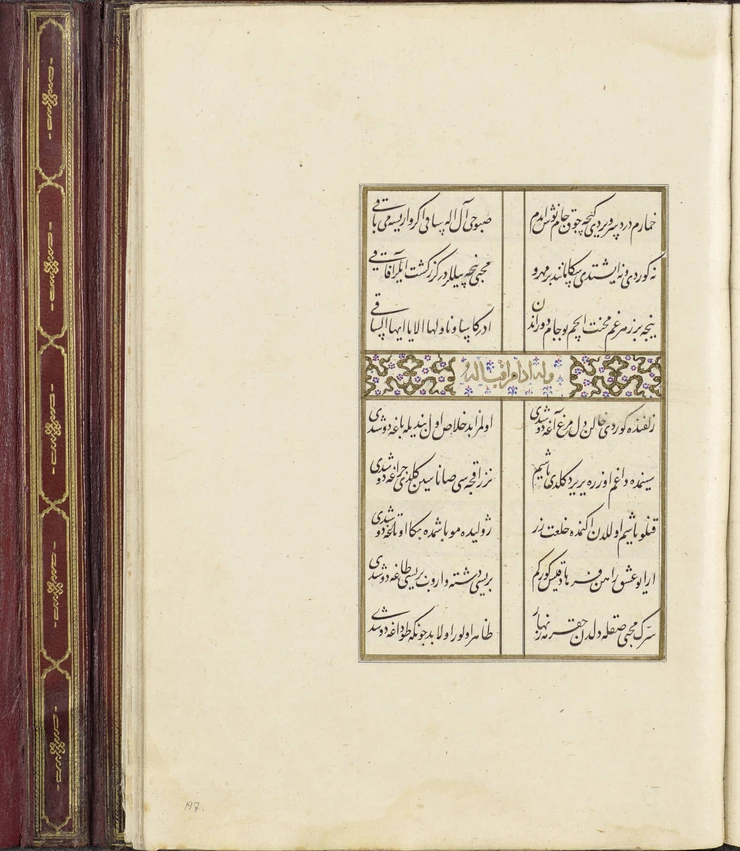
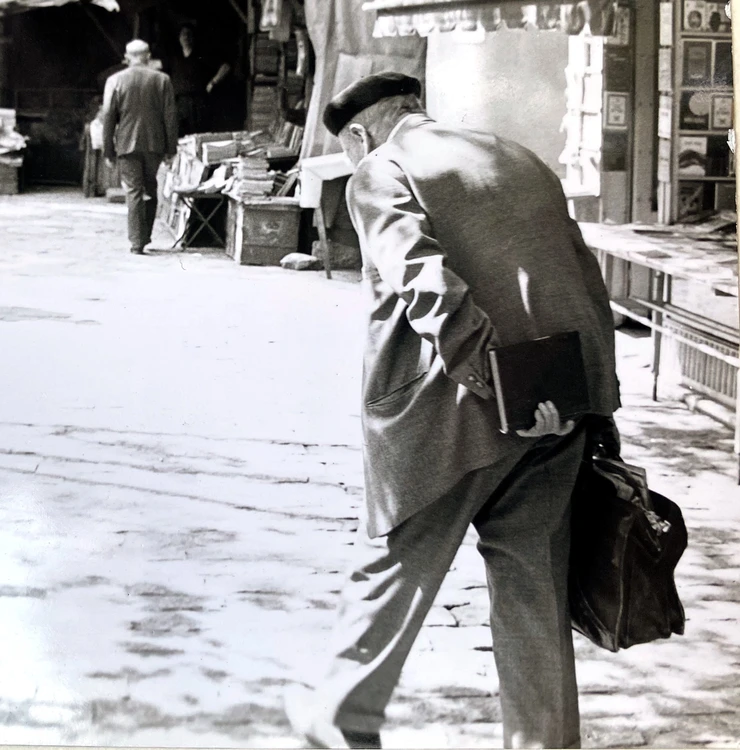
![Bibliothèque Nationale de France, Supplément Persan 205, fol. 2a. Mongol prince [Abaqa Ilkhan?] standing near ʿAlāʾ al-Dīn ʿAṭā Malik sitting on a cushion under a pomegranate tree. Dīn ʿAṭā Malik auf einem Kissen unter einem Granatapfelbaum sitzend.](/fileadmin/_processed_/2/d/csm_De_Nicola_dc2b5d3b84.webp)
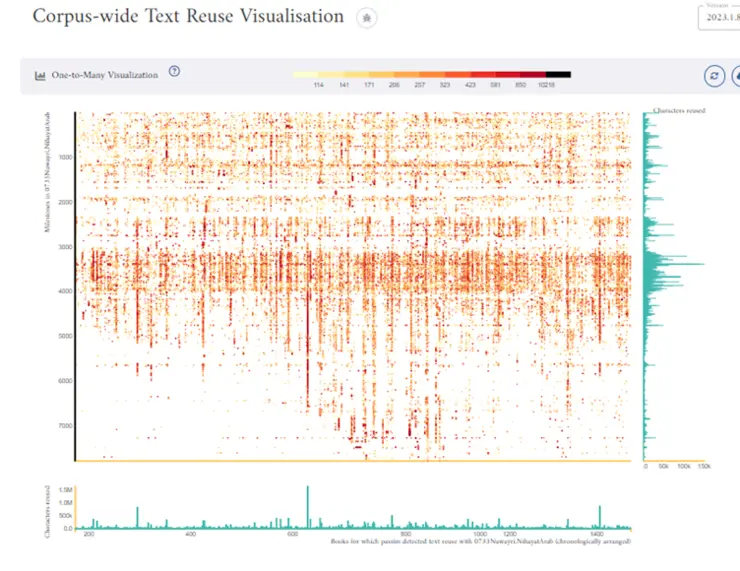

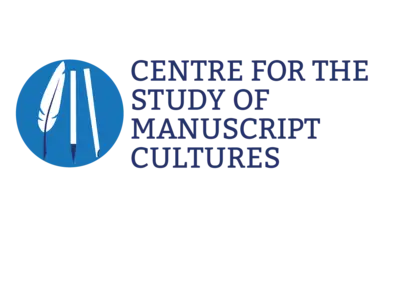
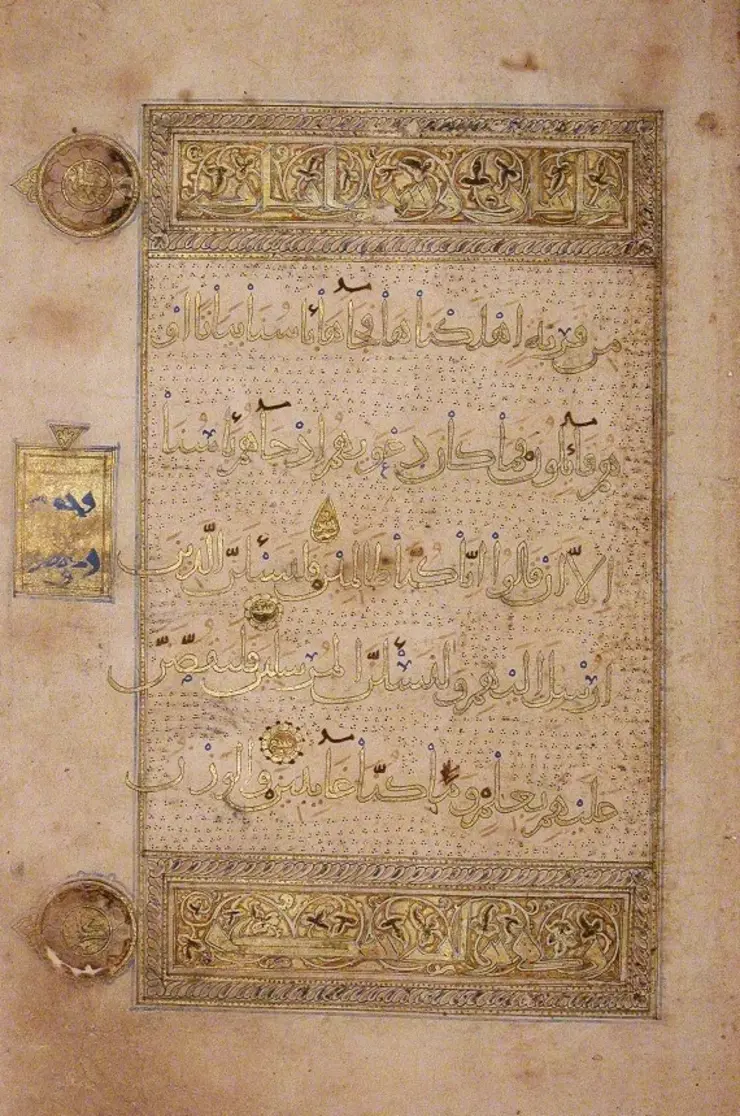

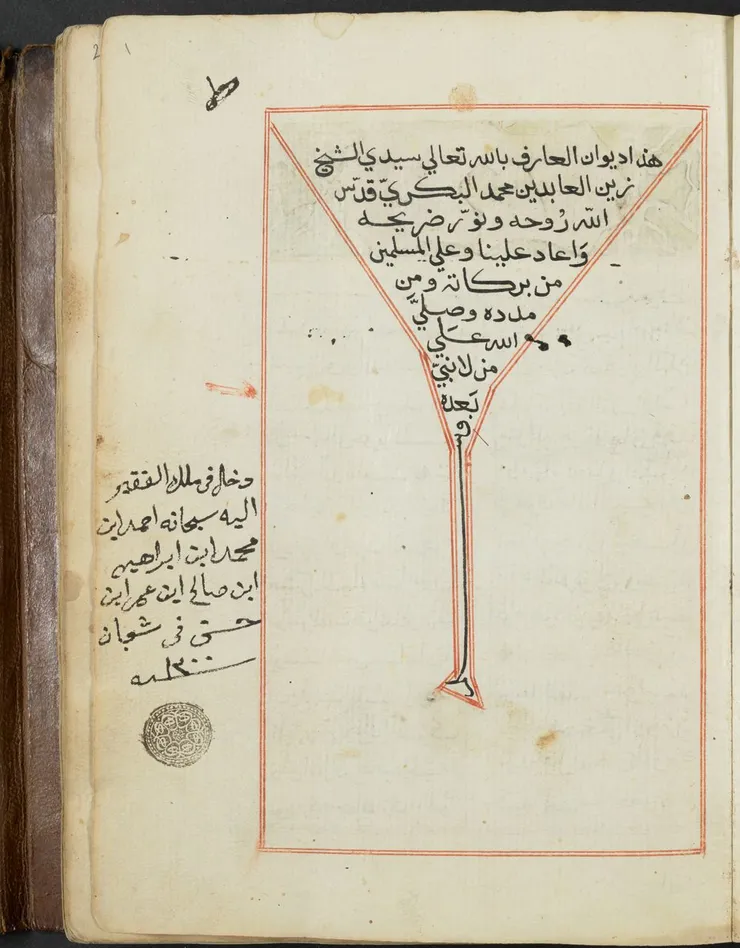

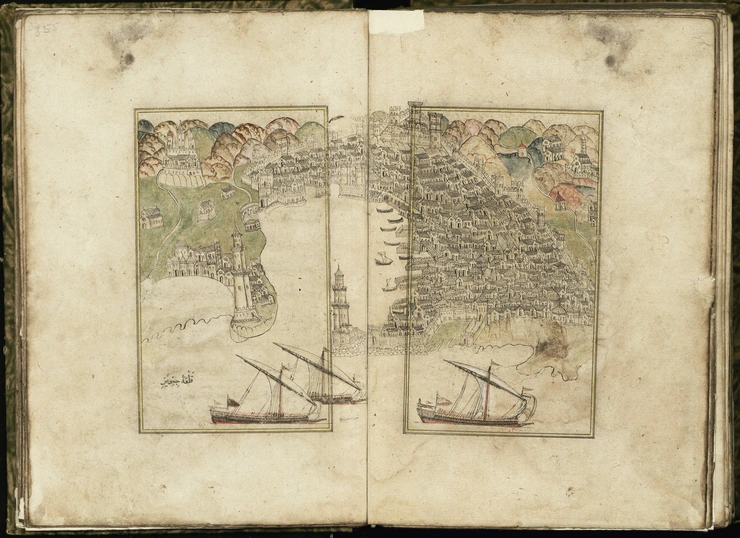
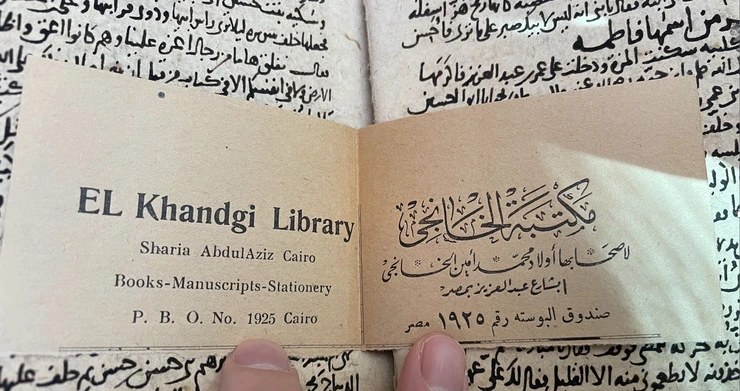
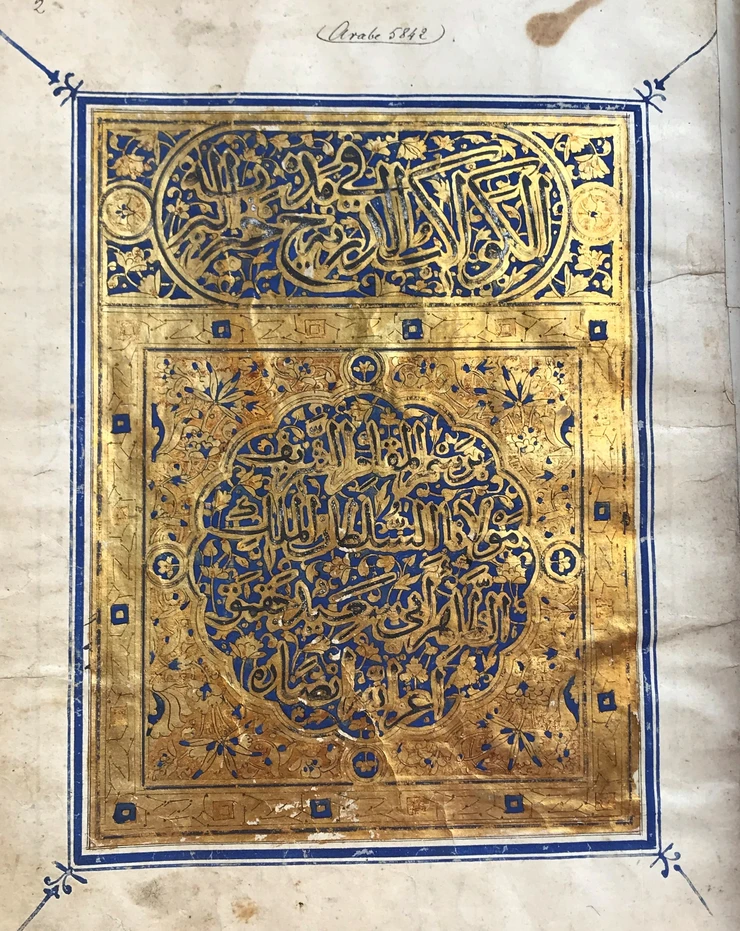


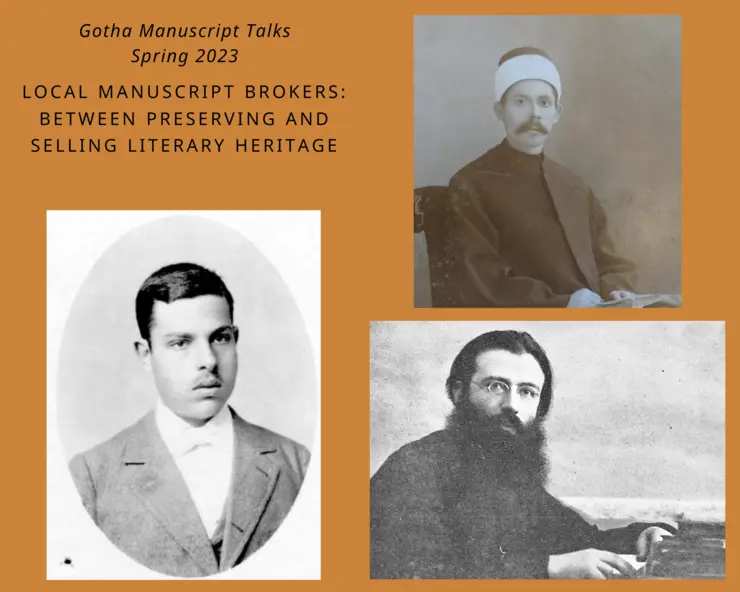
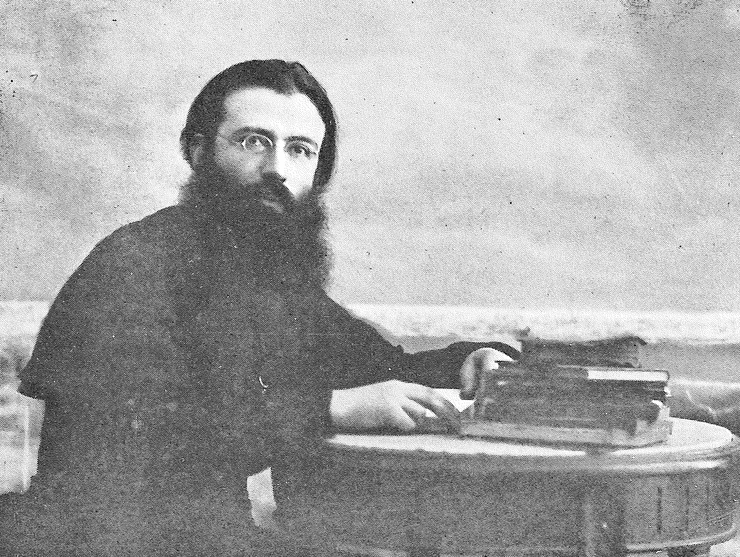
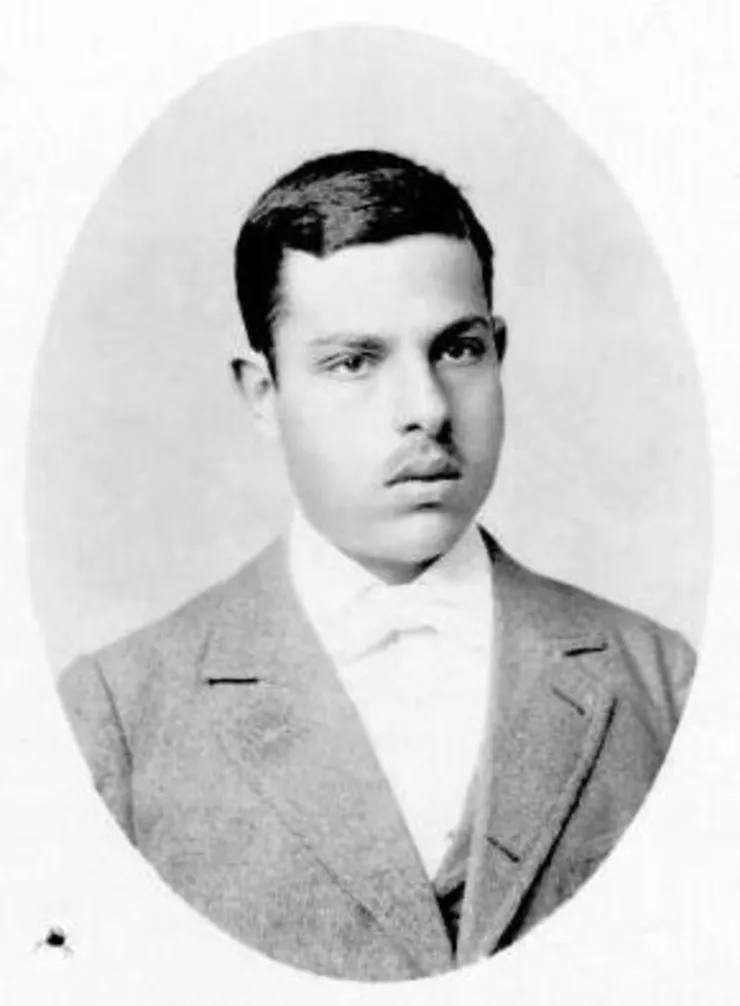
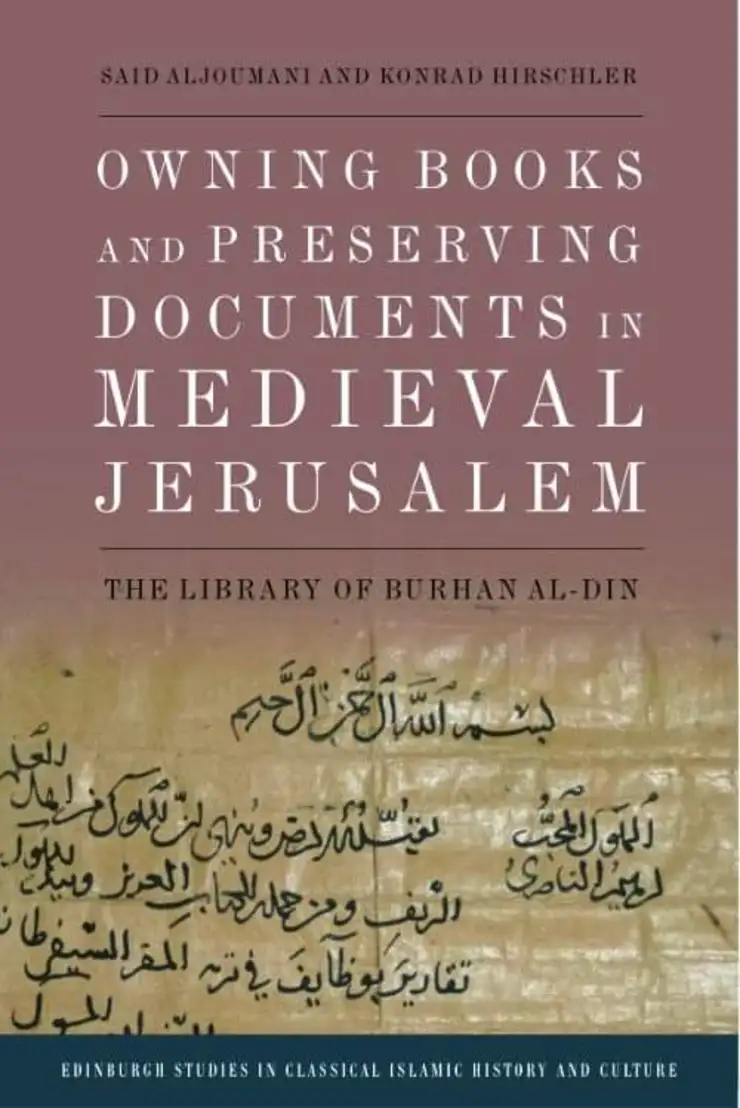
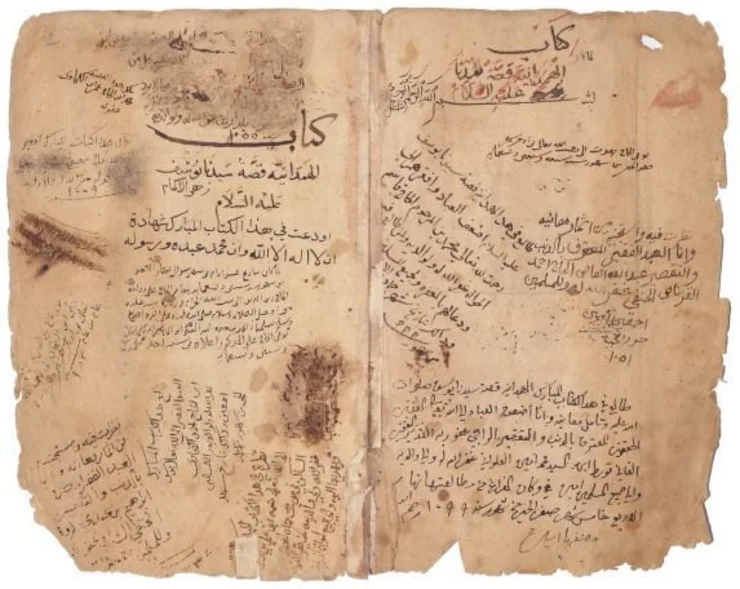
![[Translate to English:] Literaturgeschichte](/fileadmin/_processed_/b/e/csm_Vortrag_Klemm_b47bb1dda7.webp)



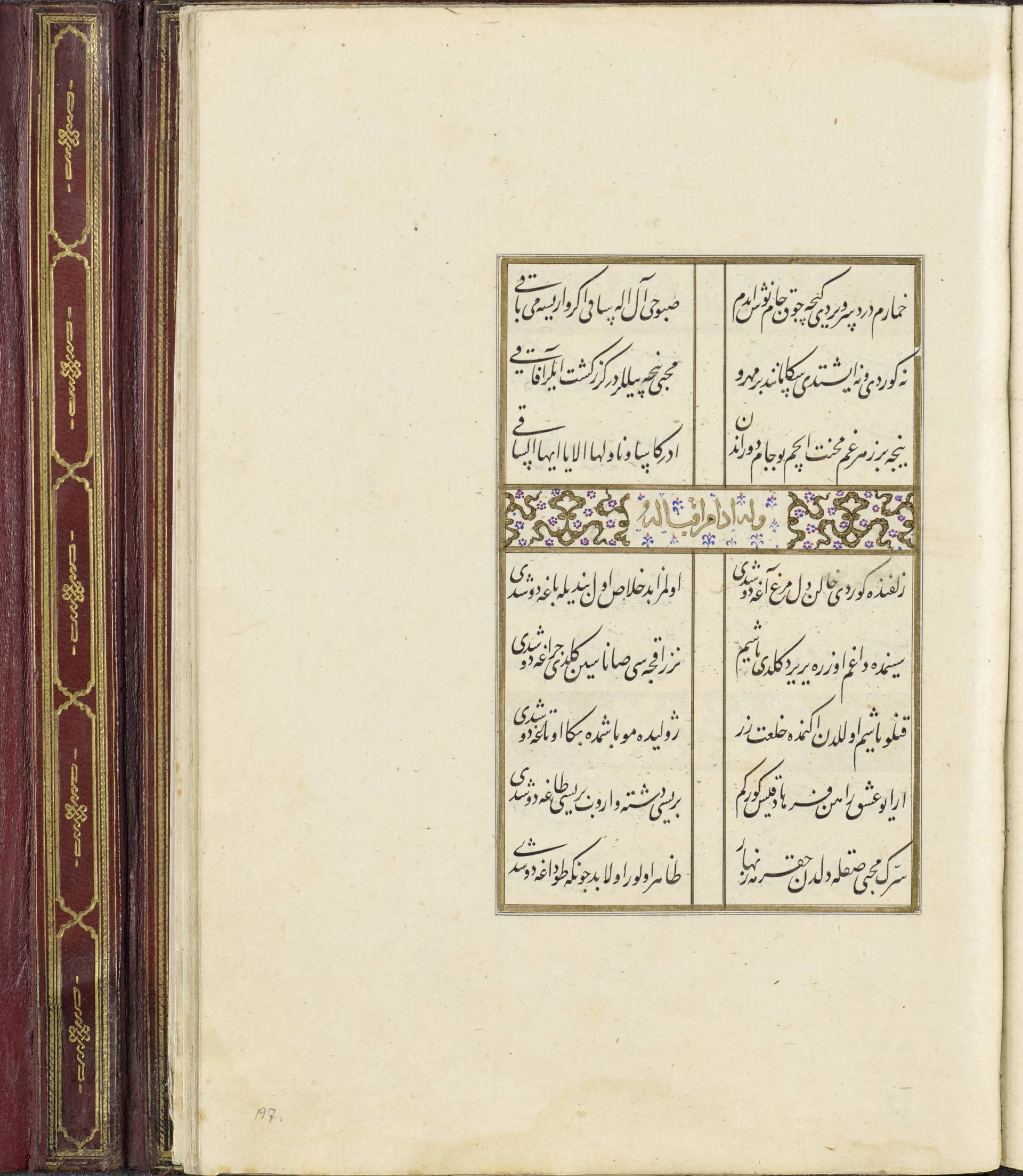
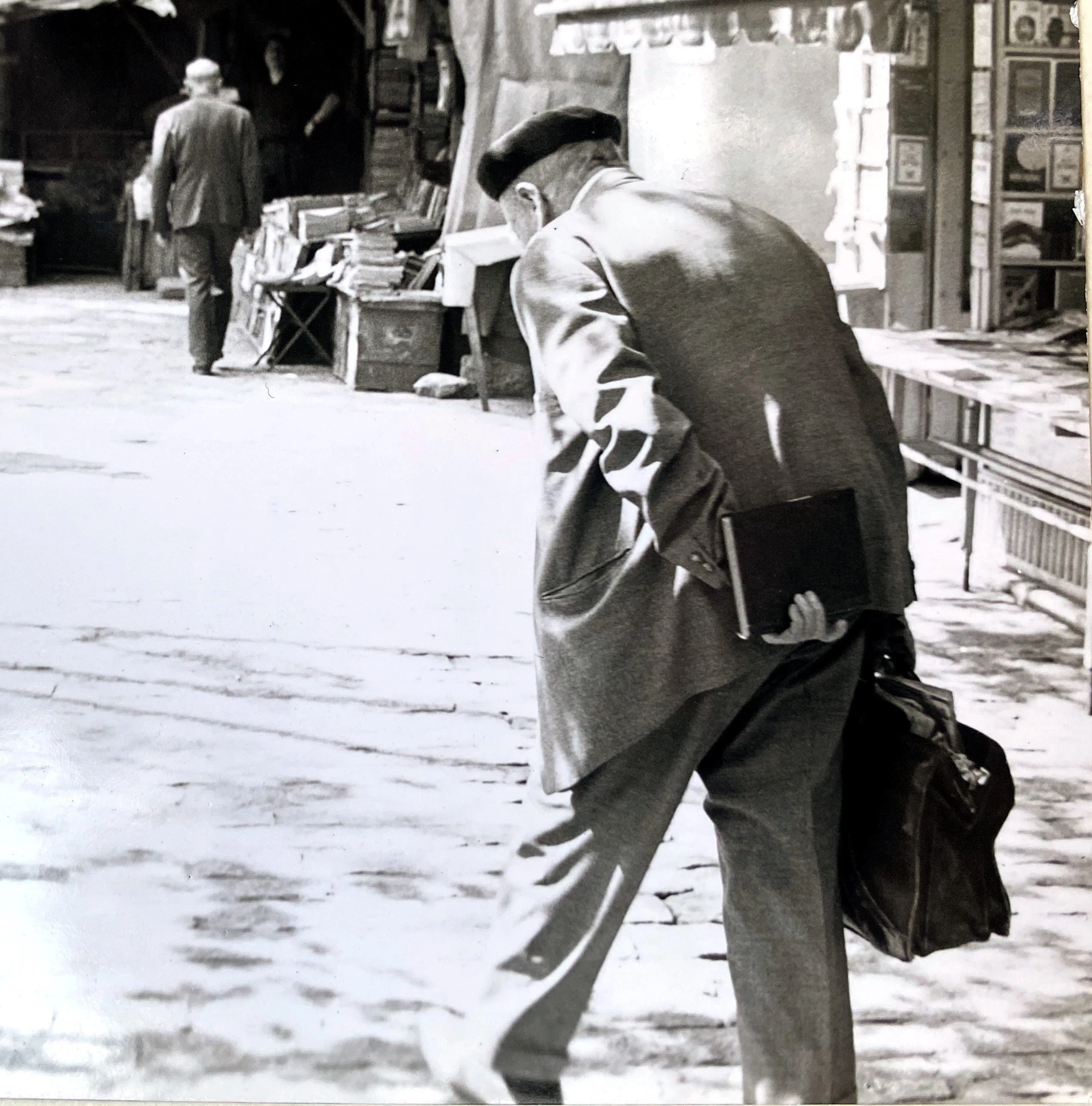
![Mongol prince [Abaqa Ilkhan?] standing near ʿAlāʾ al-Dīn ʿAṭā Malik sitting on a cushion under a pomegranate tree. Dīn ʿAṭā Malik auf einem Kissen unter einem Granatapfelbaum sitzend.](https://www.uni-erfurt.de/fileadmin/_processed_/2/d/csm_De_Nicola_89ed9a73a3.webp)
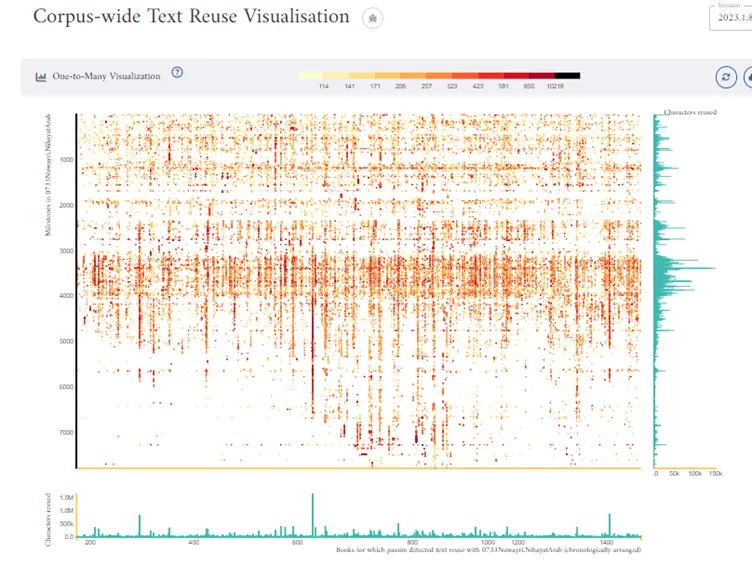
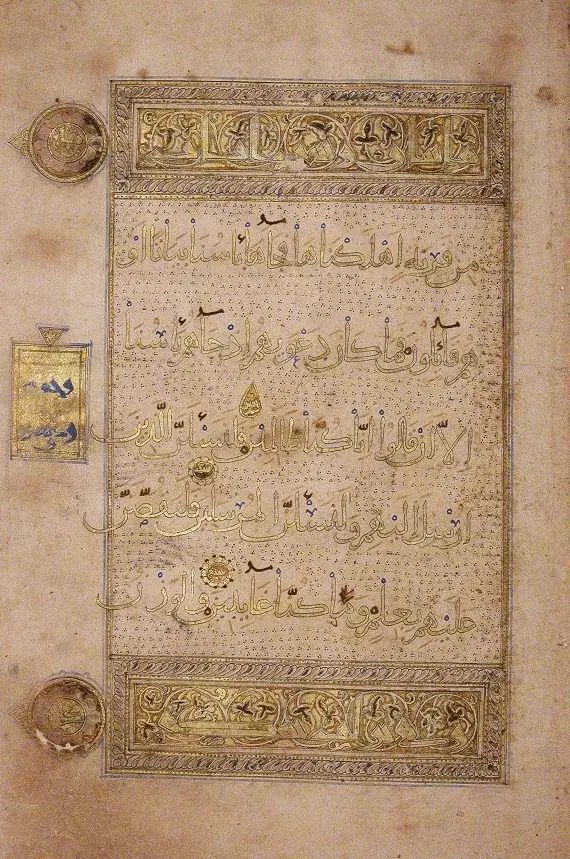
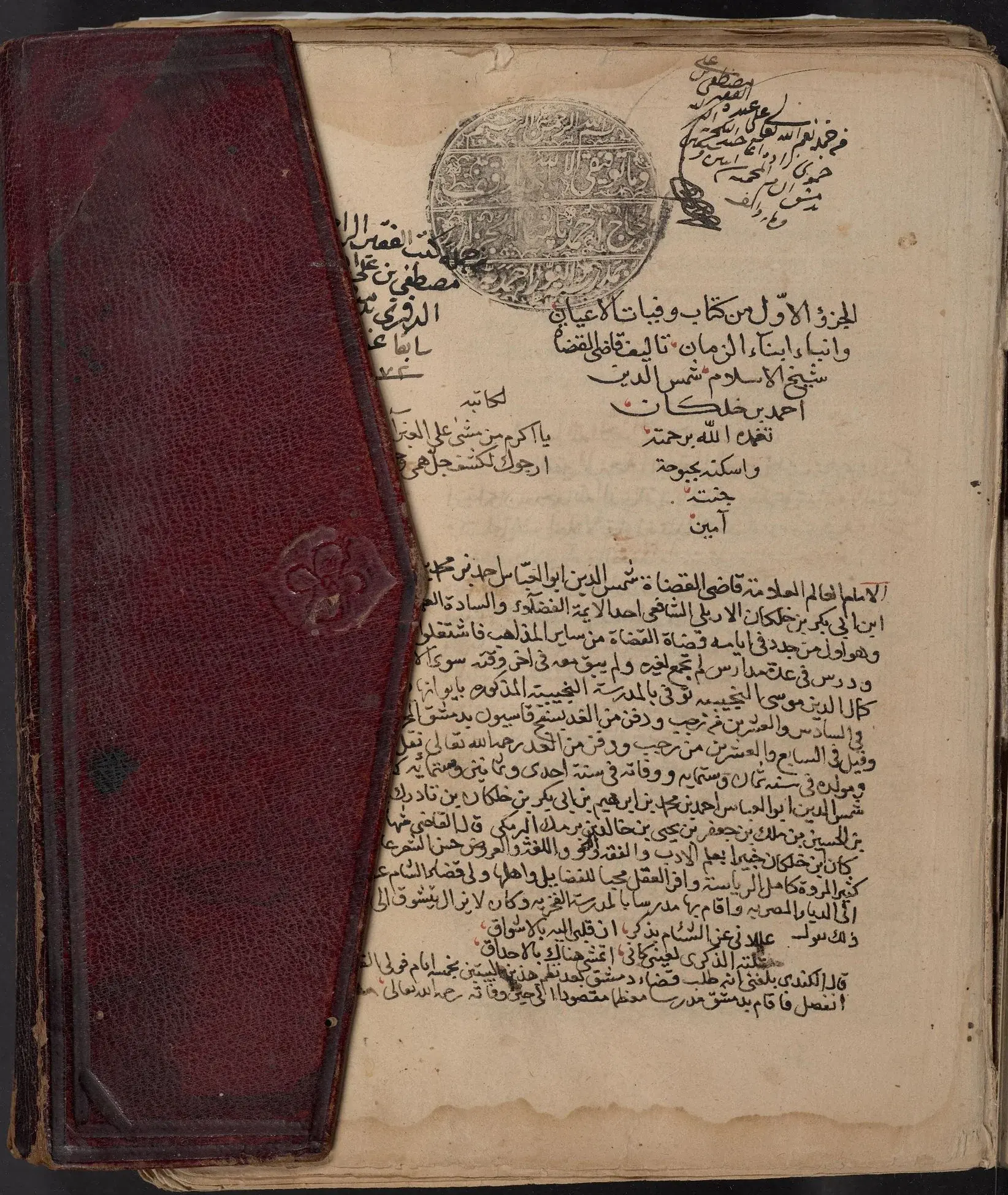
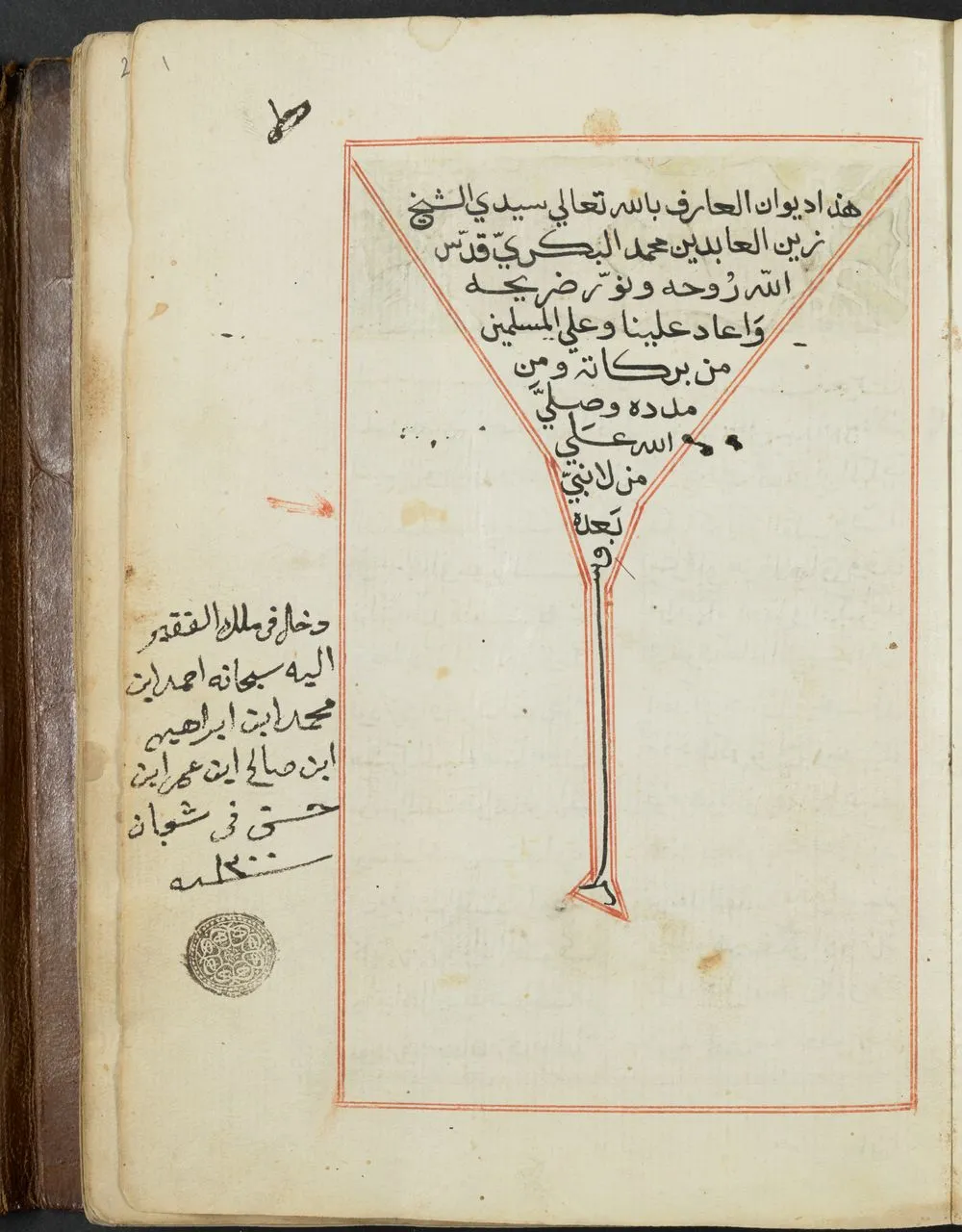
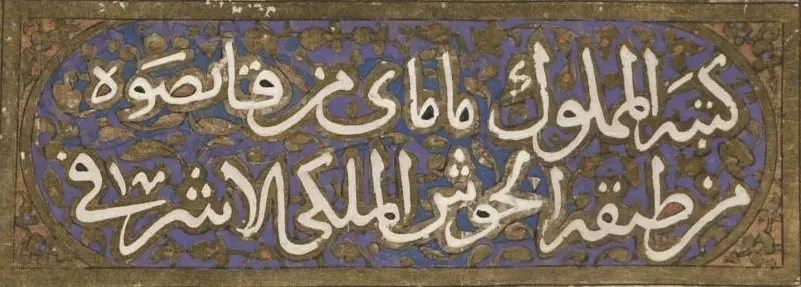
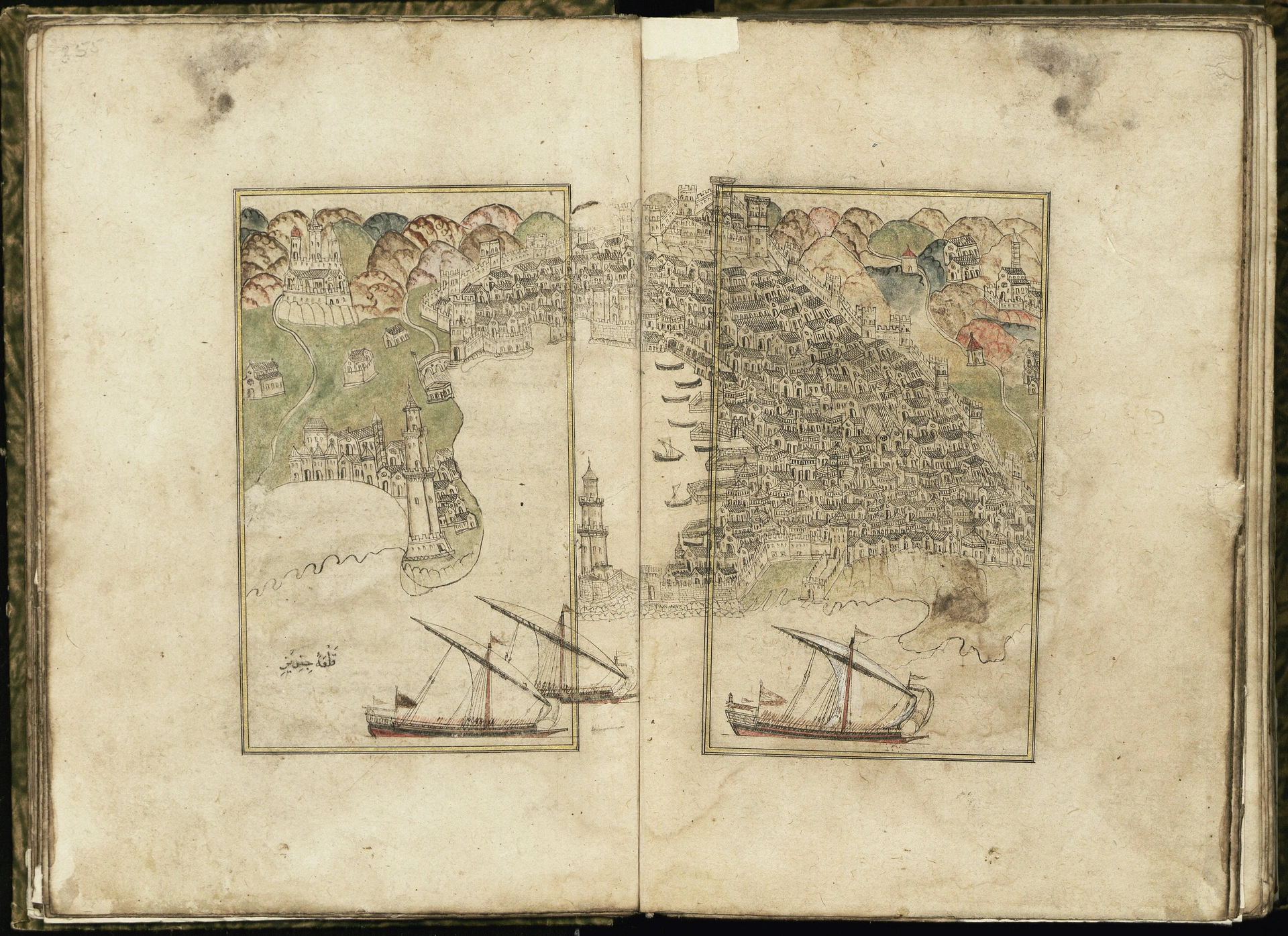
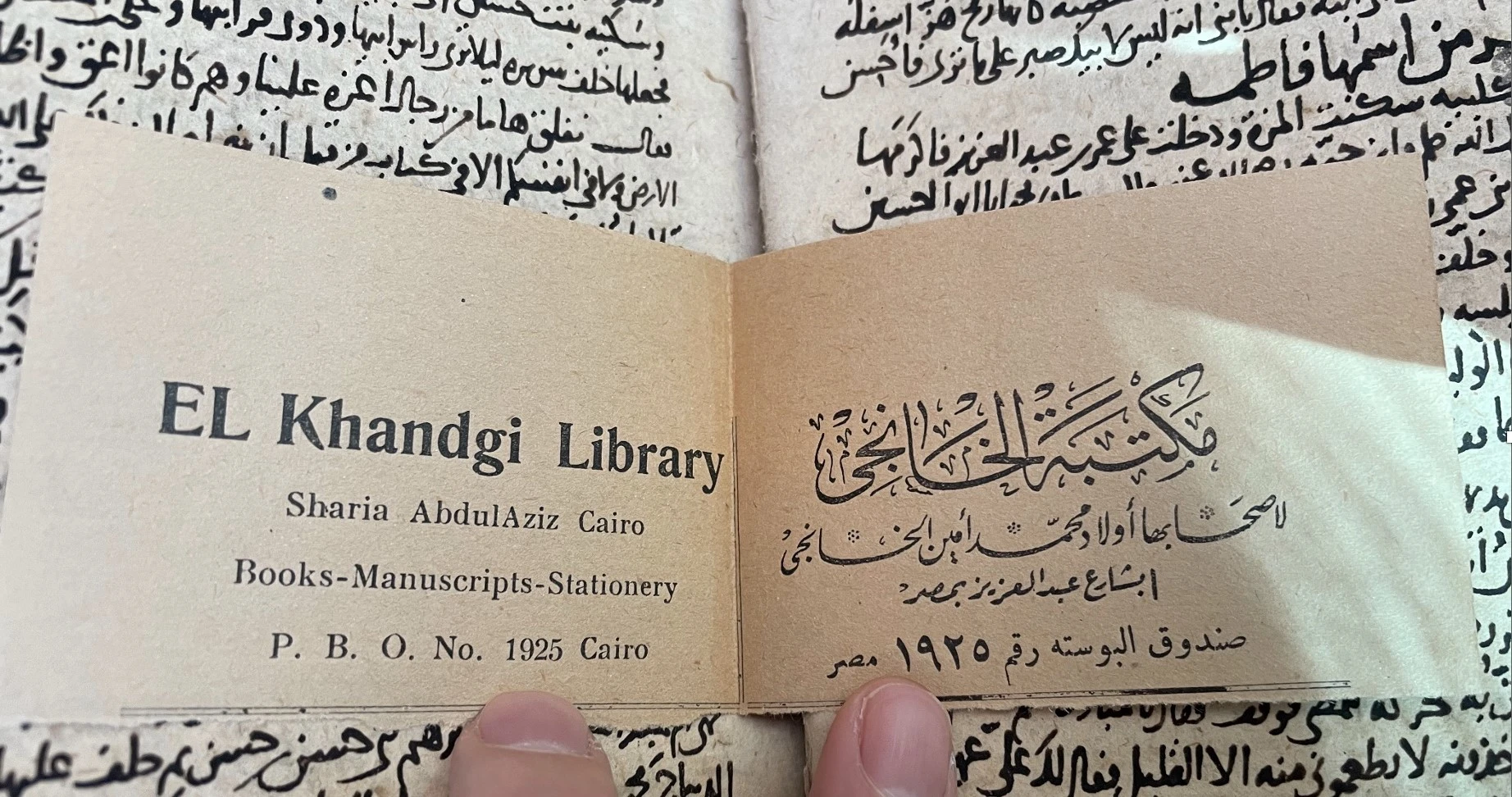
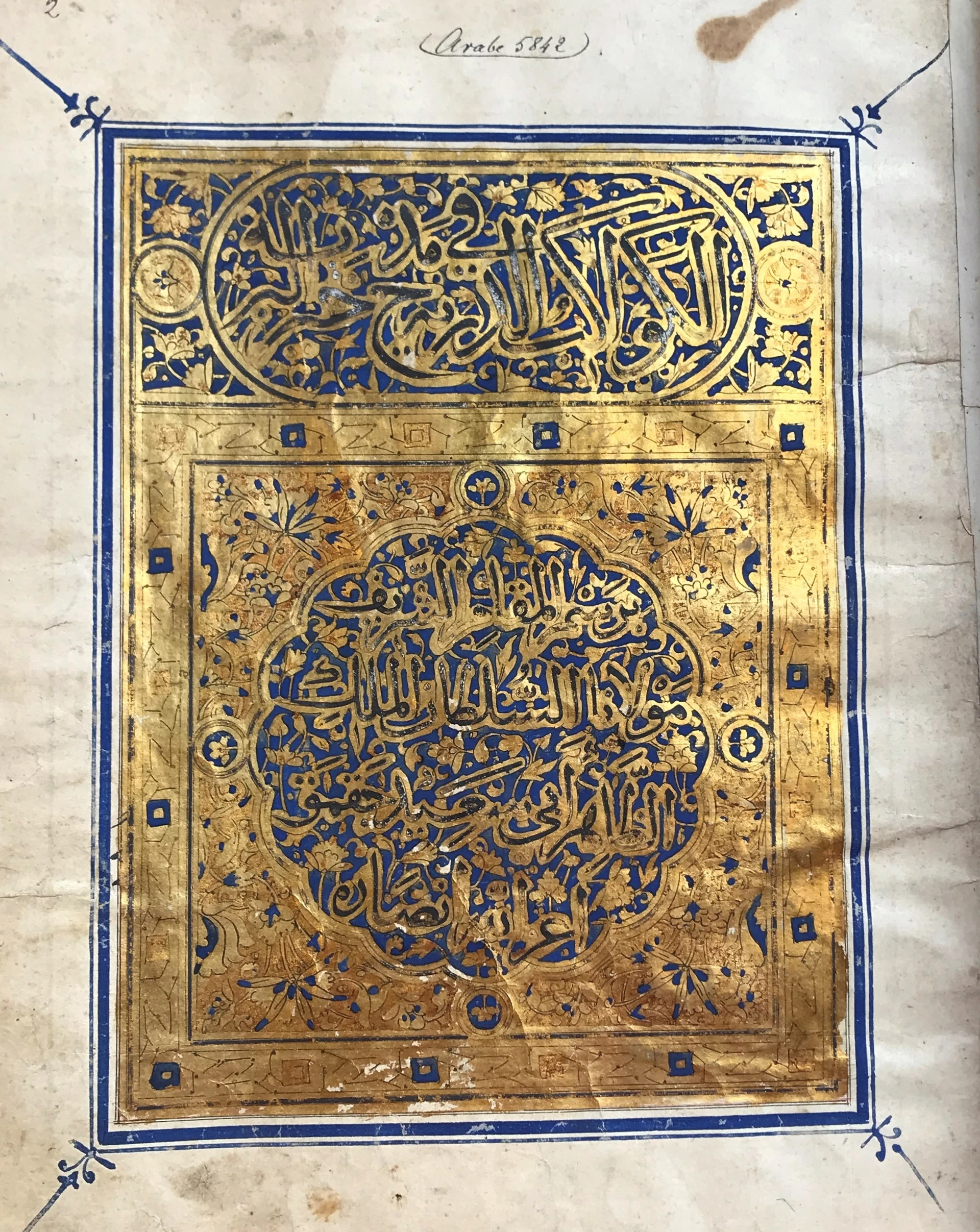
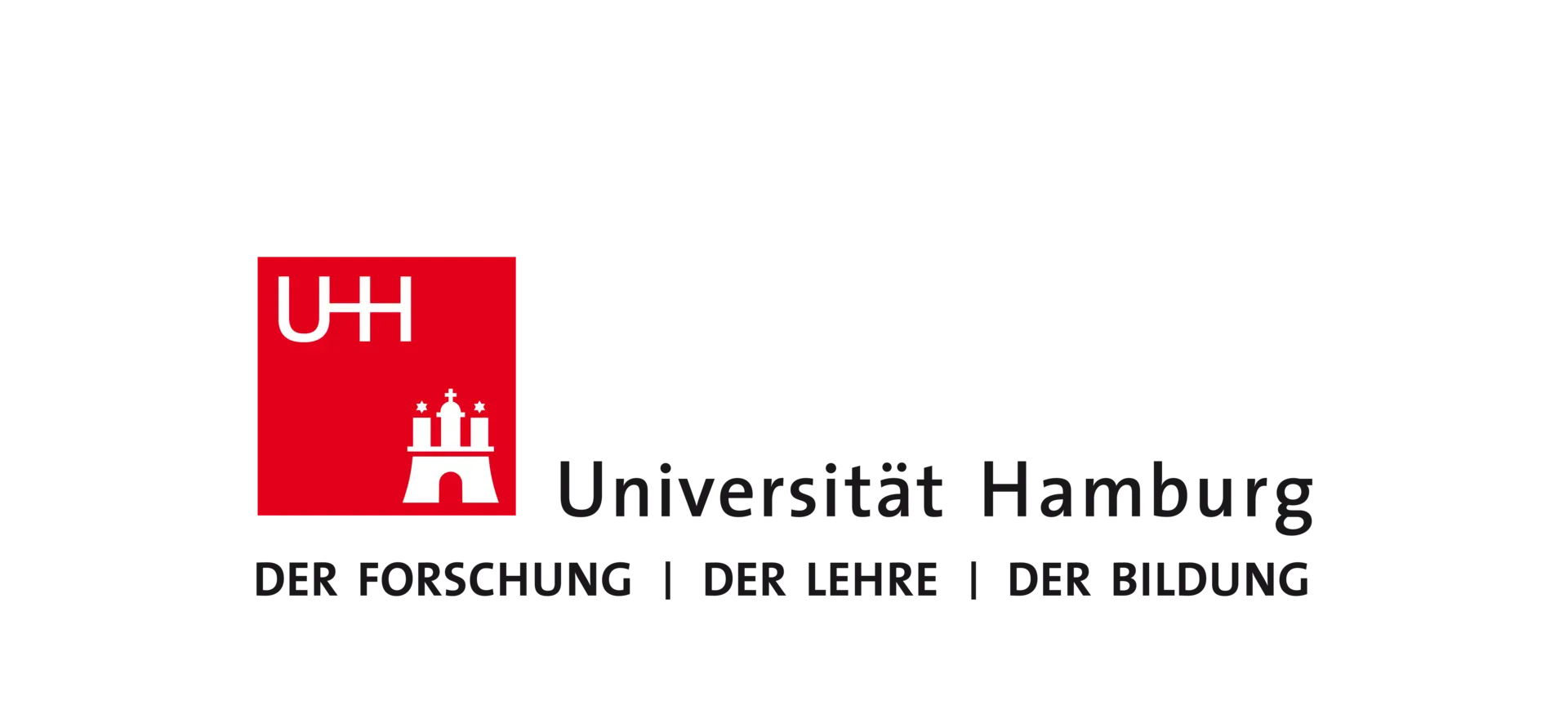
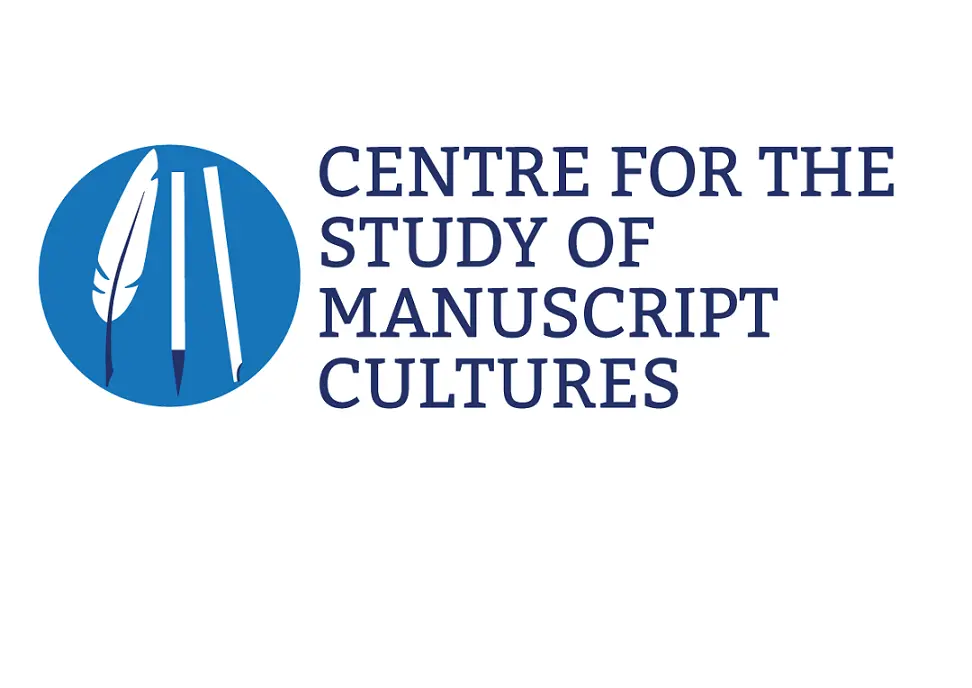
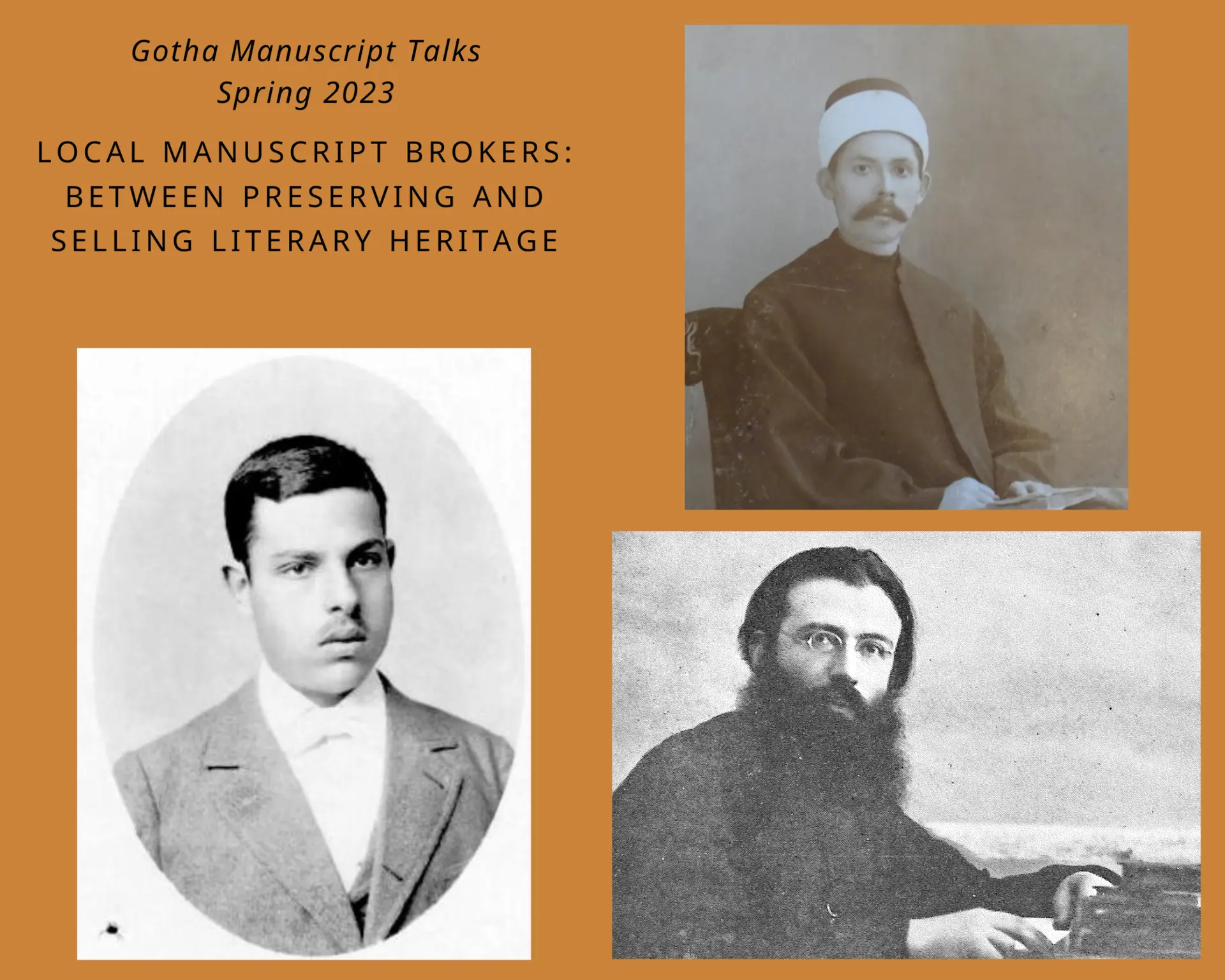
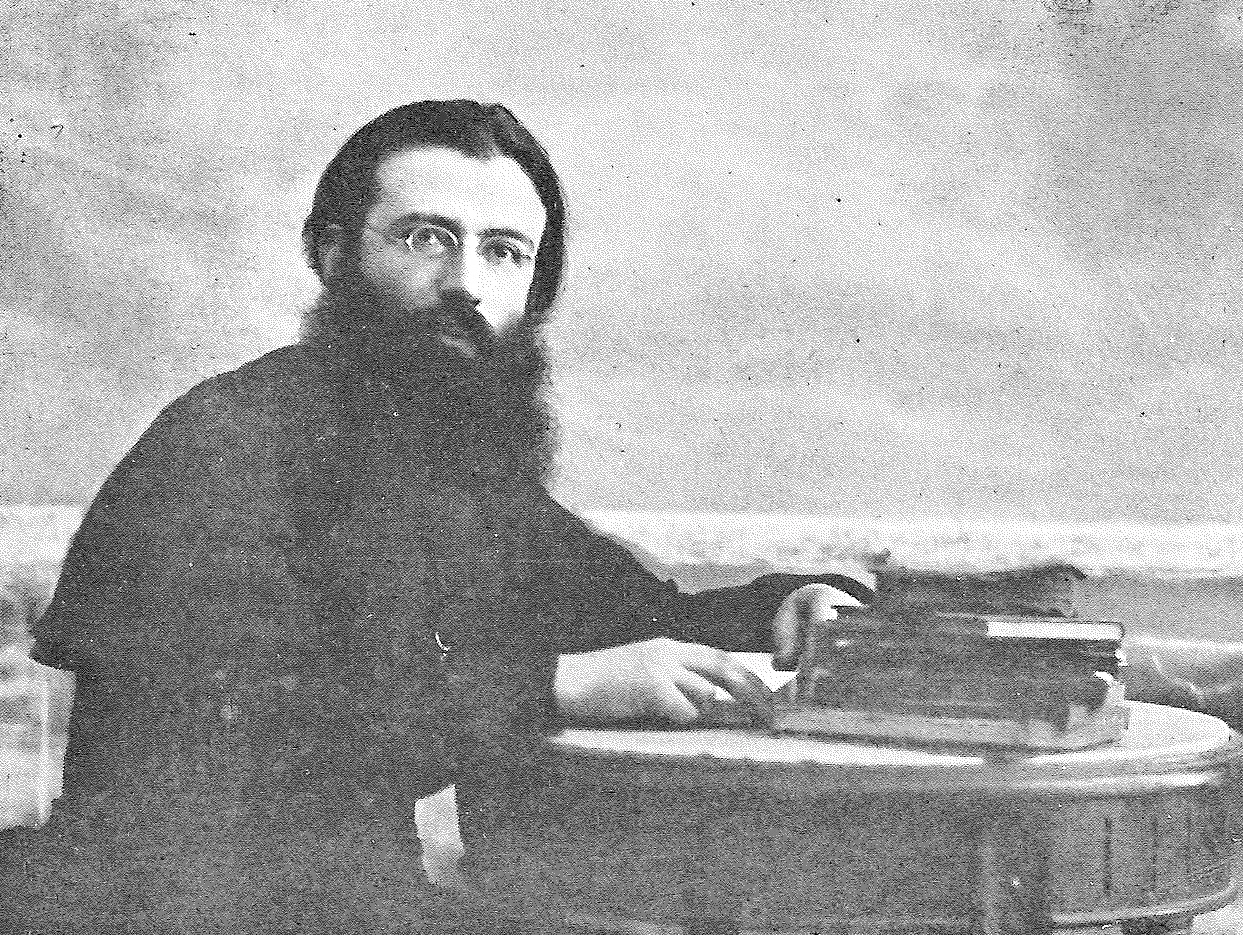
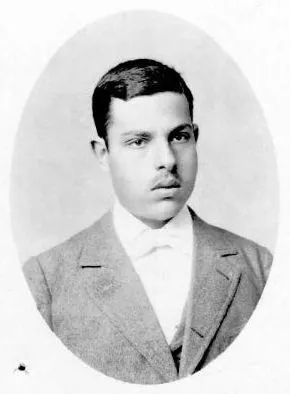
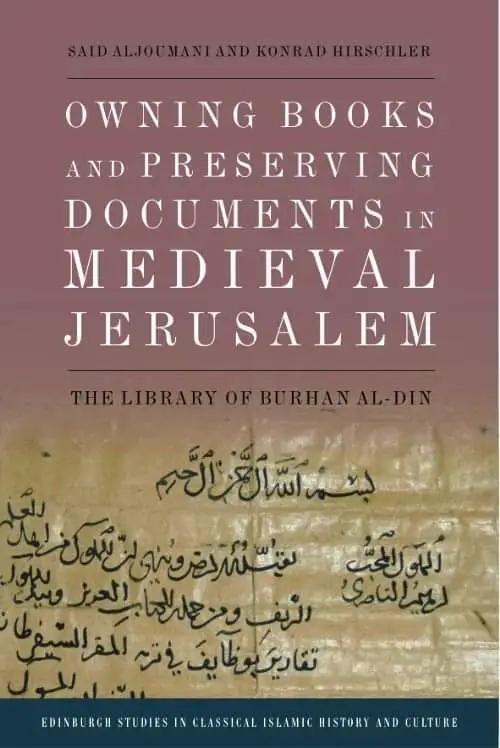
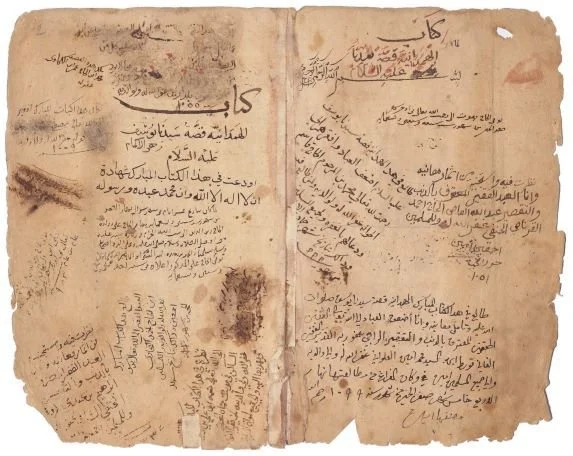
![[Translate to English:] Literaturgeschichte](https://www.uni-erfurt.de/fileadmin/_processed_/b/e/csm_Vortrag_Klemm_cd614cf177.webp)